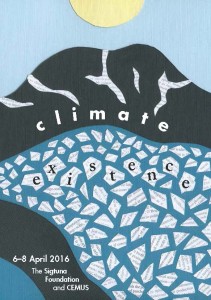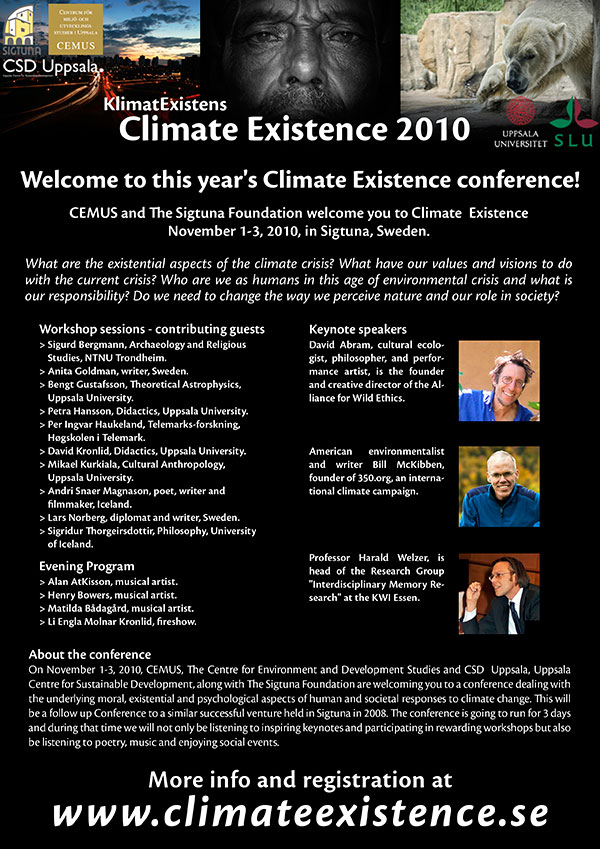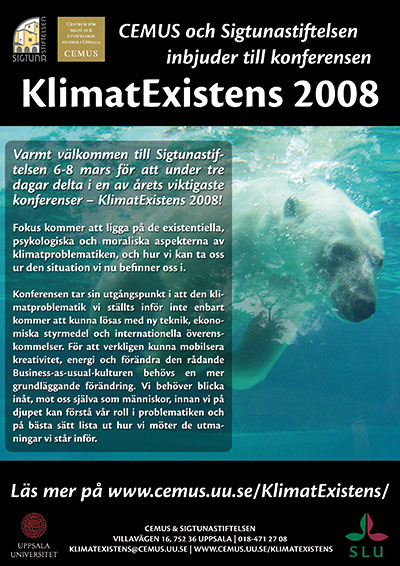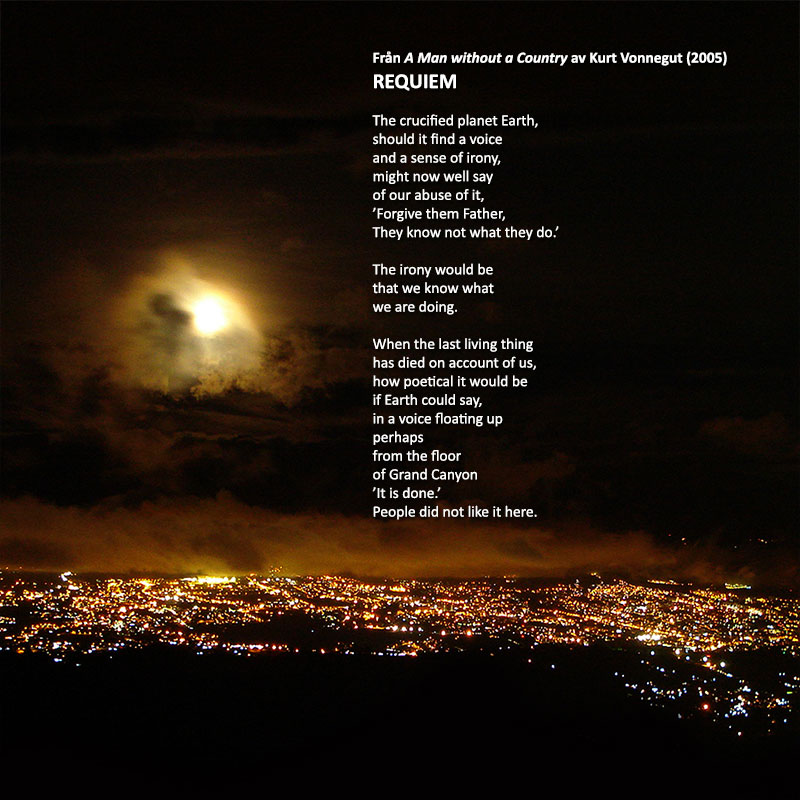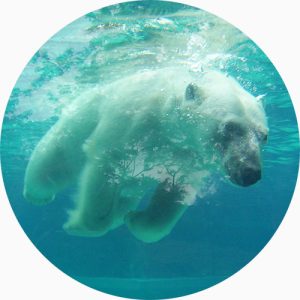 The conference – ClimateExistence, KlimatExistens – has since 2008 brought together scholars, researchers, educators, artists, activists, students and the general public in an engaged discussion and dialogue concerning the existential, psychological, philosophical and ethical dimensions of climate change / crisis / breakdown.
The conference – ClimateExistence, KlimatExistens – has since 2008 brought together scholars, researchers, educators, artists, activists, students and the general public in an engaged discussion and dialogue concerning the existential, psychological, philosophical and ethical dimensions of climate change / crisis / breakdown.
The ClimateExistence conference is a collaboration between the Sigtuna Foundation and the Centre for Environment and Development Studies, CEMUS at Uppsala University and SLU.
Read more about previous conferences below.
If you have any questions please contact Malin Östman at malin.ostman@cemus.uu.se
Archive from previous years
2008 | 2010 | 2016 | 2018 | 2021 | 2023
ClimateExistence 2023
Thank you all for ClimateExistence 2023! Please share your stories and photos
ClimateExistence 2023 has come to an end, but our work continues! CEMUS’ and the Sigtuna Foundation’s doors are as always open for new collaborations, suggestions and mysterious events, don’t be a stranger! We’ll see you next time, whenever that is …
This page will be updated with more recordings, photos and texts as we get them ready and sent to us.
How can we embrace the dismembered world, live meaningful lives and actively engage for better?
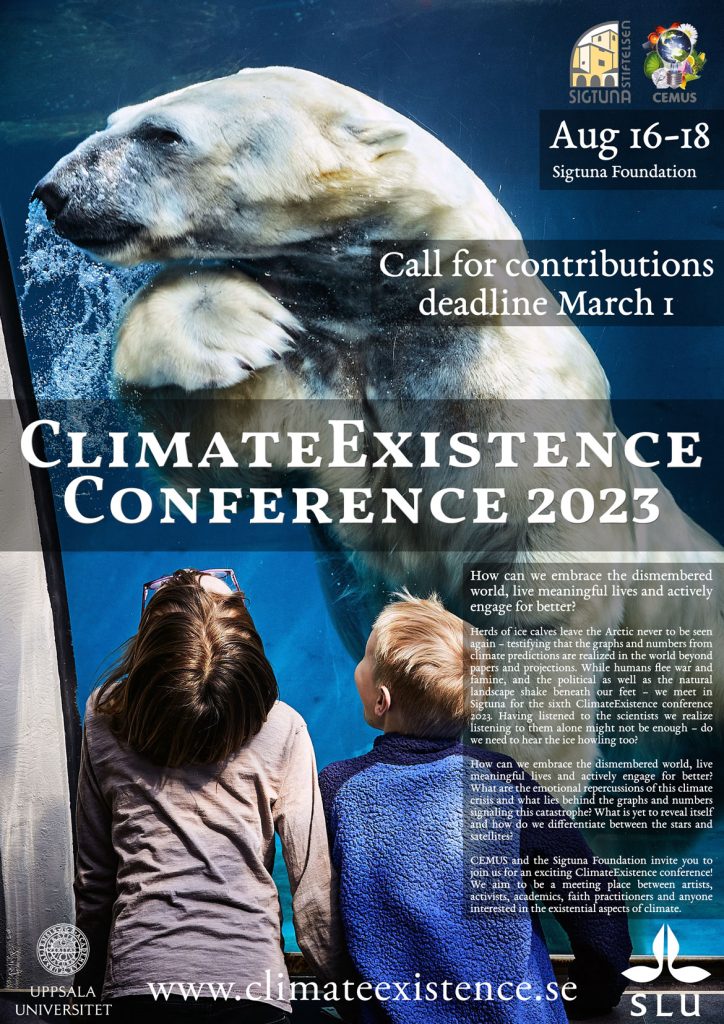 Herds of ice calves leave the Arctic never to be seen again – testifying that the graphs and numbers from climate predictions are realized in the world beyond papers and projections. While humans flee war and famine, and the political as well as the natural landscape shake beneath our feet – we meet in Sigtuna for the sixth ClimateExistence conference 2023. Having listened to the scientists we realize listening to them alone might not be enough – do we need to hear the ice howling too?
Herds of ice calves leave the Arctic never to be seen again – testifying that the graphs and numbers from climate predictions are realized in the world beyond papers and projections. While humans flee war and famine, and the political as well as the natural landscape shake beneath our feet – we meet in Sigtuna for the sixth ClimateExistence conference 2023. Having listened to the scientists we realize listening to them alone might not be enough – do we need to hear the ice howling too?
How can we embrace the dismembered world, live meaningful lives and actively engage for better? What are the emotional repercussions of this climate crisis and what lies behind the graphs and numbers signaling this catastrophe? What is yet to reveal itself and how do we differentiate between the stars and satellites?
CEMUS and the Sigtuna Foundation invite you to join us for an exciting ClimateExistence conference! We aim to be a meeting place between artists, activists, academics, faith practitioners and anyone interested in the existential aspects of climate.
When: August 16-18 2023
Where: The Sigtuna Foundation Sweden
Call for contributions
We encourage everyone interested to send in a contribution to the conference. This contribution can be in a variety of formats. Suggestions for art-installations, performances, poetry, workshops or more traditional academic papers are all welcome. If you have ideas you would like to share with us before the contribution deadline, we are very grateful for an e-mail with your thoughts.
At the conference we will focus on several different themes within the concept of ClimateExistence and the review committee will suggest where the accepted contributions might fit in. We aim at combining different kinds of contributions and merging categories. We are especially interested in the spaces, cracks and bridges between different disciplines and expressions.
Send in your contribution here: https://doit.medfarm.uu.se/bin/kurt3/kurt/75779
In addition to written material, feel free to include music files, videos, pictures or pictures of material if relevant. If you think the contribution file size is too large for e-mail, please let us know how we can access the material in other ways (link to webpage also works). A review committee will look at all the contributions and we will get back to you after the deadline. Please do not hesitate to contact us should you have any questions.
Program
Room names and numbers in brackets, click for map. To read more about different sessions click Show description.
Open throughout the conference
Mattias Bäcklin – Månkryss – exhibition
Sanctuary of Hope: An open space for stillness, meditation and prayer
Wednesday August 16
Time |
Program |
| 9.00-10.00 | Registration and morning coffee [20 Carin & Thorsten, next to the reception] |
| 10.00-10.20 | Ida Lod and Kerstin Bragby Artistic opening The Sigtuna Foundation and CEMUS Welcome to ClimateExistence 2023! [11 Stora Salen] |
| 10.20-11.00 | Isabella Lövin “On the Oceanic feeling – and the need for a new narrative on the human nature relationship”
Mikael Kurkiala “The responsibility is always mine” [11 Stora Salen] |
| 11.10-12.00 | Isabella Lövin and Mikael Kurkiala Panel with keynote speakers moderated by Alf Linderman [11 Stora Salen] |
| 12.00-13.00 | Lunch |
| 13.00-14.00 | Jan van Boeckel “When the moment begins to heave and expand in great circles”
Aaron Tuckey Spoken word [11 Stora Salen] |
| 14.10-15.45 | Parallel sessions
Session 1
Enki Inkpen Jenny Björklund & Maja Bodin
Session 2
Francis Rogers
Session 3 Ylva Björnberg & Alexander Crawford “Exploring another sustainability discourse: Sense-making through the predicament” [15 Framtiden]
Session 4
Vitalija Povilaityte-Petri
Session 5
Jan van Boeckel & Ceciel Verheij |
| 15.45-16.15 | Fika and exhibitions |
| 16.15-17.00 | May-Britt Öhman “Sámi and Feminist Technoscience perspectives on Settler Colonialism in (Un)green, Climate-(Un)friendly Disguise” [11 Stora Salen] |
| 17.00-18.30 | Pre-dinner program
Moderated conversation with artist Mattias Bäcklin and Vilma Loustarinen 17.45-18.15 [27 Rosengårdssalen] |
| 18.30-20.00 | Dinner |
| 20.15 | Jacek Smolicki Discord, MA (2023, 35 min) [33 Bibliotek] |
| 21.00 | Open mic [27 Rosengårdssalen] |
Thursday August 17
Time |
Program |
| 7.00-8.30 | Breakfast Optional walk with Alexander Crawford, meet in reception 7.45 |
| 8.30-9.30 | Dougald Hine “Making Good Ruins: The Work of Living at the End of a World” (also livestreamed online) [11 Stora Salen] |
| 9.30-10.00 | Fika |
| 10.00-12.00 | Stephen Jenkinson and Anita Goldman In conversation (also livestreamed online) [11 Stora Salen] |
| 12.00-13.00 | Lunch |
| 13.00-14.30 | Parallel sessions
Session 1
Jörgen Andersson, Gabriel Liljenström & Pella Thiel
Session 2
Åsa Callmer Henrik Ohlsson Eléonore Fauré
Session 3 Dougald Hine “Making Good Ruins: The Work of Living at the End of a World” [17 Tacksamheten]
Session 4
Ida Idaida & Malin Zimm |
| 14.30-15.00 | Fika |
| 15.00-15.30 | Jacek Smolicki “More than Ears. Listening as an Environmental and Existential Practice” [11 Stora Salen] |
| 15.45-17.00 | Avskedsbyrån Ars Moriendi A Ceremonial Last Farewell of the Climate Goals, followed by a Farewell Reception [28 Olaus Petri kapellet] |
| 17.00-18.30 | Pre-dinner program
Jacek Smolicki Lake that Glimmers Like Fire (2021, 15 min) 17.45-18.00 [33 Bibliotek] |
| 18.30-20.30 | Dinner |
| 21.00 | Stephen Jenkinson and Gregory Hoskins concert, A Night of Grief & Mystery 2023 World Tour [11 Stora Salen] |
Friday August 18
Time |
Program |
| 7.00-9.00 | Breakfast and check-out of rooms (check out no later than 9.00) |
| 9.00-10.30 | Parallel sessions
Session 1
(p)Art of the Biomass
Session 2
Third task
Session 3
Christoffer Söderlund Kanarp Johan Gärdebo & Isak Stoddard
Session 4
Ida Lod & Kerstin Bragby
Session 5
Enki Inkpen & Art Club at the End of the World |
| 10.30-11.00 | Fika |
| 11.00-12.00 | Pella Thiel “Legally hacking the Machine – Institutions for a dignified human presence in Earth” [11 Stora Salen] |
| 12.00-13.00 | Lunch |
| 13.00-14.35 | Mikael Kurkiala, Patricia Lorenzoni and Mattias Olsson Panel discussion moderated by Malin Östman “What is yet to reveal itself and how do we differentiate between the stars and satellites?” [11 Stora Salen] |
| 14.45-15.30 | Ida Lod and Kerstin Bragby Artistic closing [11 Stora Salen] |
| 15.30-16.00 | Fika |
Guests and contributors
Guest and contributors will be posted as they are confirmed. May be subject to change up until the start of the conference.
Art at the End of the World club [CEMUS – Sweden]
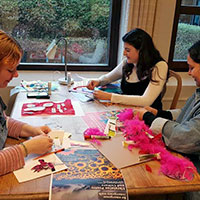 A gathering for anyone who wants to creatively explore themes around humans, nature, and the entangled ties between us. With an ecological theme to guide the sessions, we create and share art of any medium (visual, poetry, film, music etc), and any level of experience is welcome. We aim to cultivate a supportive and emotionally open space where it is possible for people to express eco-grief and anxiety through creativity, while leaving room for hope. Despite the title, your work does not have to be about the end of the world!
A gathering for anyone who wants to creatively explore themes around humans, nature, and the entangled ties between us. With an ecological theme to guide the sessions, we create and share art of any medium (visual, poetry, film, music etc), and any level of experience is welcome. We aim to cultivate a supportive and emotionally open space where it is possible for people to express eco-grief and anxiety through creativity, while leaving room for hope. Despite the title, your work does not have to be about the end of the world!
http://www.cemus.uu.se/art-club/
Jenny Björklund [Professor, Centre for Gender Research, Uppsala University – Sweden]
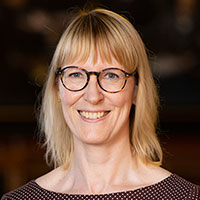
Photo: Mikael Wallerstedt
Anna Björkman [Co-founder a school called HOME, strategist and analyst – Sweden]
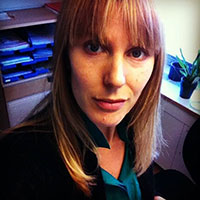 Anna Björkman is co-founder of a school called HOME. She currently works as a strategist and analyst with local government in Sweden. Her earlier career has taken her from connecting cultural foundations around Europe, to setting up children’s libraries across the Middle East and supporting grassroots women’s organisations in Israel and Palestine.
Anna Björkman is co-founder of a school called HOME. She currently works as a strategist and analyst with local government in Sweden. Her earlier career has taken her from connecting cultural foundations around Europe, to setting up children’s libraries across the Middle East and supporting grassroots women’s organisations in Israel and Palestine.
Ylva Björnberg [Future forecaster, storyteller and pathfinder – Sweden]
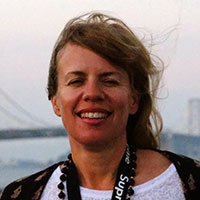 Ylva Björnberg is a future forecaster, storyteller and pathfinder who enables organisations describe who they are (existential identity work) and what path to embark on (strategy) through combining intellectual and intuitive methodologies. Her client work includes representatives of cross-disciplinary constellations such as nations, The Council for the Promotion of Sweden, regional bodies, municipalities, membership organisations such as the employer organisation for the service sector Almega and the Swedish national health service. After years of service, Ylva is currently in the process of “coming out” as a deep civilisation critic, from a conviction that our earth systems crises are symptoms of a disjointed mindset which needs a turnaround into a relational perception. She is now pioneering practical, experiential solutions to hold “radically inclusive stakeholder dialogues” together with clients. These dialogues are founded on a posthumanist approach and take place between natural persons, legal persons and those of us who are not humans – for example lakes, birds, forests, mountains as well as wider bioregions. Ylva has an academic background in law, anthropology, pedagogy, arts, language and communication.
Ylva Björnberg is a future forecaster, storyteller and pathfinder who enables organisations describe who they are (existential identity work) and what path to embark on (strategy) through combining intellectual and intuitive methodologies. Her client work includes representatives of cross-disciplinary constellations such as nations, The Council for the Promotion of Sweden, regional bodies, municipalities, membership organisations such as the employer organisation for the service sector Almega and the Swedish national health service. After years of service, Ylva is currently in the process of “coming out” as a deep civilisation critic, from a conviction that our earth systems crises are symptoms of a disjointed mindset which needs a turnaround into a relational perception. She is now pioneering practical, experiential solutions to hold “radically inclusive stakeholder dialogues” together with clients. These dialogues are founded on a posthumanist approach and take place between natural persons, legal persons and those of us who are not humans – for example lakes, birds, forests, mountains as well as wider bioregions. Ylva has an academic background in law, anthropology, pedagogy, arts, language and communication.
Maja Bodin [Midwife and Postdoctoral researcher, Department of History of Science and Ideas, Uppsala University – Sweden]
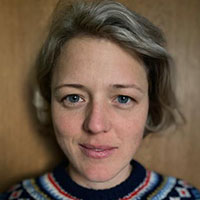 Maja Bodin is a midwife and PhD in reproductive health. Her main area of expertise is reproductive decision-making, which she studies from an interdisciplinary perspective (medicine, gender, sociology, history of ideas).
Maja Bodin is a midwife and PhD in reproductive health. Her main area of expertise is reproductive decision-making, which she studies from an interdisciplinary perspective (medicine, gender, sociology, history of ideas).
Jan van Boeckel [Professor Art & Sustainability, Research Centre Art & Sustainability, Hanze UAS, Artist and Filmmaker – The Netherlands]
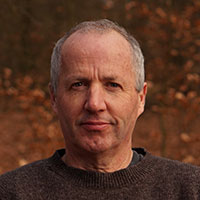 Jan van Boeckel is professor Art & Sustainability at Research Centre Art & Society of Hanze University of Applied Sciences in Groningen, the Netherlands. He started his career as a cultural anthropologist. With the passing of time, Jan increasingly focused his attention on both his own developing artistic practice and on the teaching of art – two orientations that eventually converged into the role of artist-educator. Jan has initiated and taken part in several research projects on the interfaces of where art and sustainability meet. Specializing himself in the new field of arts-based environmental education, he received his degree as Doctor of Arts in arts education at Aalto University, Helsinki, in 2013. In the past years he has worked in several Northern countries – among which Iceland, Sweden, Estonia and Finland. Each autumn, At the invitation of the Estonian Academy of Arts, Jan teaches the intensive course ‘Art and Sustainability Education’ in Lahemaa National Park. He regularly facilitates wildpainting courses across Europe, that aim to inspire participants to connect to nature through art making activities. As part of Tim Ingold’s “Knowing from the Inside” research project, Jan explored how a regenerative pedagogy would look if it would encourage teachers to be attentive to the participants’ “light in the eyes.” At Hanze UAS, Jan’s primary research interest is in how art can help us face the great challenges of our time, of which the ecological crisis in its many dimensions is the most pressing.
Jan van Boeckel is professor Art & Sustainability at Research Centre Art & Society of Hanze University of Applied Sciences in Groningen, the Netherlands. He started his career as a cultural anthropologist. With the passing of time, Jan increasingly focused his attention on both his own developing artistic practice and on the teaching of art – two orientations that eventually converged into the role of artist-educator. Jan has initiated and taken part in several research projects on the interfaces of where art and sustainability meet. Specializing himself in the new field of arts-based environmental education, he received his degree as Doctor of Arts in arts education at Aalto University, Helsinki, in 2013. In the past years he has worked in several Northern countries – among which Iceland, Sweden, Estonia and Finland. Each autumn, At the invitation of the Estonian Academy of Arts, Jan teaches the intensive course ‘Art and Sustainability Education’ in Lahemaa National Park. He regularly facilitates wildpainting courses across Europe, that aim to inspire participants to connect to nature through art making activities. As part of Tim Ingold’s “Knowing from the Inside” research project, Jan explored how a regenerative pedagogy would look if it would encourage teachers to be attentive to the participants’ “light in the eyes.” At Hanze UAS, Jan’s primary research interest is in how art can help us face the great challenges of our time, of which the ecological crisis in its many dimensions is the most pressing.
www.janvanboeckel.com
www.wildpainting.org
www.hanze.nl/nld/onderzoek/profielen/lectoren/jan-boeckel
Kerstin Bragby [Actress/Performance artist, Educative pilgrim and Doctor Philosophy, Applied Theatre and Drama – Sweden]
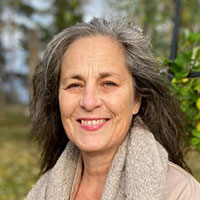 Kerstin Bragby has an ongoing background as a theatre and cultural worker. Thirteen years in the internationally composed theatre group Earth Circus in the 80-to 90s that produced out- and indoor theatre for children, young and grown-ups, on their own stage in Stockholm and on tour in Sweden, the Nordic countries and Europe. On a national level Earth Circus was one of the initiators in arranging the first bigger performing art festivals in Stockholm. Cultural projects in urban areas and in schools, non-violent training and activism was part of a methodology for social and societal change. She also produces solo performances through conscious art experiments on themes of women identity, existential questions, culture, ecology (She holds a master’s degree in biology in her back-back).
Kerstin Bragby has an ongoing background as a theatre and cultural worker. Thirteen years in the internationally composed theatre group Earth Circus in the 80-to 90s that produced out- and indoor theatre for children, young and grown-ups, on their own stage in Stockholm and on tour in Sweden, the Nordic countries and Europe. On a national level Earth Circus was one of the initiators in arranging the first bigger performing art festivals in Stockholm. Cultural projects in urban areas and in schools, non-violent training and activism was part of a methodology for social and societal change. She also produces solo performances through conscious art experiments on themes of women identity, existential questions, culture, ecology (She holds a master’s degree in biology in her back-back).
As an educator she is since year 2000 active within as well as beyond the academy, with experience-based learning processes for individual, group and organisation inspired by the repertoire of the ensemble actor and co-creating devised processes in performing arts. In courses like “Creative retreats” and “Living life as an art”, the professional background in performing art, art-based research and education coincide with 20 years of initiated experience and teaching of Native American practises, and 10 years in a tantric tradition, ceremonial, meditative, personal developmental and yogic, know-how.
She develops hybrid forms of knowledge, in forms as poetic reports and aesthetic responses. Together with Ida Lod in Ki -Kompani she cultivates poetical improvisational- and performance practices collaborating with many different contexts.
Åsa Callmer [Postdoctoral researcher, School of Humanities, Education and Social Sciences, Örebro University – Sweden]
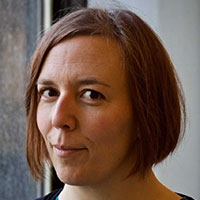 Åsa Callmer is a researcher in environmental sociology. In her ongoing research project, she explores the different ways in which social relations may facilitate and/or hinder reduced consumption and sustainable lifestyle choices. Her main research interests are (un)sustainable lifestyles and planning for sustainable transformations. She is especially interested in social norms, wellbeing and justice within planetary boundaries, and sociocultural dimensions of humans’ relationship with Nature. Her PhD thesis Making sense of sufficiency: Entries, practices and politics deals with the idea, practices, and politics of sufficiency in an affluent consumerist society.
Åsa Callmer is a researcher in environmental sociology. In her ongoing research project, she explores the different ways in which social relations may facilitate and/or hinder reduced consumption and sustainable lifestyle choices. Her main research interests are (un)sustainable lifestyles and planning for sustainable transformations. She is especially interested in social norms, wellbeing and justice within planetary boundaries, and sociocultural dimensions of humans’ relationship with Nature. Her PhD thesis Making sense of sufficiency: Entries, practices and politics deals with the idea, practices, and politics of sufficiency in an affluent consumerist society.
Alexander Crawford [Analyst, facilitator and commentator, former – Sweden]
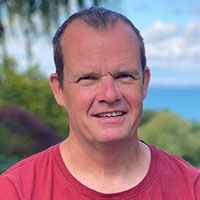 Alexander Crawford is a Stockholm-based analyst, facilitator and commentator. Trained as an economist, he has taken part in the sustainability conversation in Sweden and globally for over two decades, as consultant, scenario planner and designer and facilitator of numerous seminars, conferences and change processes (including as research director and lead program designer of the Tällberg Forum (2005-2013), CEO of the think tank Global Utmaning, and program manager at the Swedish Institute working with leadership development for sustainable business in developing countries).
Alexander Crawford is a Stockholm-based analyst, facilitator and commentator. Trained as an economist, he has taken part in the sustainability conversation in Sweden and globally for over two decades, as consultant, scenario planner and designer and facilitator of numerous seminars, conferences and change processes (including as research director and lead program designer of the Tällberg Forum (2005-2013), CEO of the think tank Global Utmaning, and program manager at the Swedish Institute working with leadership development for sustainable business in developing countries).
Eléonore Fauré [Postdoctoral researcher, Lund University – Sweden]
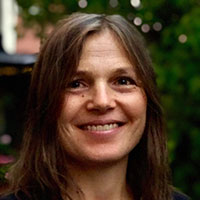 Eléonore Fauré is currently a post-doctoral researcher at Lund University, where she is part of the multidisciplinary Climaginaries network, exploring in creative ways how a post-fossil world might look like. Her research interests are about just and sustainable transformations and how we can embrace multiple perspectives and knowledges in speculations on what kind of society we want to live in. Her PhD thesis ‘Sharing the doughnut, exploring sustainable and just futures’ was part of the Beyond GDP Growth Project led by KTH, Royal Institute of Technology.
Eléonore Fauré is currently a post-doctoral researcher at Lund University, where she is part of the multidisciplinary Climaginaries network, exploring in creative ways how a post-fossil world might look like. Her research interests are about just and sustainable transformations and how we can embrace multiple perspectives and knowledges in speculations on what kind of society we want to live in. Her PhD thesis ‘Sharing the doughnut, exploring sustainable and just futures’ was part of the Beyond GDP Growth Project led by KTH, Royal Institute of Technology.
Anita Goldman [Author, writer och publicist – Sweden]
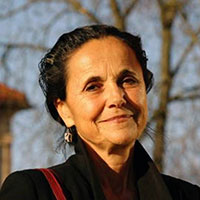 Anita Goldman is a Swedish writer och publicist. She has published almost twenty books — fiction and non-fiction. She is presently working on a big book: Det vilda hoppets geografi (“The Geography of Wild Hope”) which is a very broad investigation into our(Western) civilization’s relationship to Nature. Goldman also contributes larger opinion-pieces to the foremost Swedish daily, Dagens Nyheter. She is one of the few voices in mainstream media and culture that offers a thorough civilisatory critic of our society, focusing on the nuclear war culture and energy, on the threats to the very earth we stand on and live from, on the absurd way we manufacture food etc, but also on the healing that comes from being in touch with Nature and growing and the importance of awe and a spiritual grounding. Goldman is an impatient but avid grower of vegetables and perennials at her house at the south easternmost tip of Sweden, Österlen.
Anita Goldman is a Swedish writer och publicist. She has published almost twenty books — fiction and non-fiction. She is presently working on a big book: Det vilda hoppets geografi (“The Geography of Wild Hope”) which is a very broad investigation into our(Western) civilization’s relationship to Nature. Goldman also contributes larger opinion-pieces to the foremost Swedish daily, Dagens Nyheter. She is one of the few voices in mainstream media and culture that offers a thorough civilisatory critic of our society, focusing on the nuclear war culture and energy, on the threats to the very earth we stand on and live from, on the absurd way we manufacture food etc, but also on the healing that comes from being in touch with Nature and growing and the importance of awe and a spiritual grounding. Goldman is an impatient but avid grower of vegetables and perennials at her house at the south easternmost tip of Sweden, Österlen.
Johan Gärdebo [Historian and Postdoctoral researcher, Department of History of Science and Ideas, Uppsala University – Sweden]
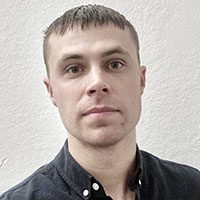 Johan Gärdebo studies climate knowledge and decarbonisation policies as these interplay in local, national, and transnational settings, from late 1800s to the present. He is currently a Research Fellow at Clare Hall (2022–2025), associated with the Cambridge Centre for History and Economics and the Department of History of Science.
Johan Gärdebo studies climate knowledge and decarbonisation policies as these interplay in local, national, and transnational settings, from late 1800s to the present. He is currently a Research Fellow at Clare Hall (2022–2025), associated with the Cambridge Centre for History and Economics and the Department of History of Science.
Dougald Hine [Social thinker, Writer and Speaker, a school called HOME – Sweden]
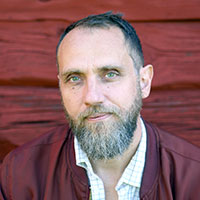
Photo: Ingrid Rieser
He has given keynotes and talks on numerous platforms – from the European Commission and TEDx events to the back rooms of pubs and squatted social centres – and is a regular guest lecturer at universities, art and architecture schools across Europe. In 2012, Google invited him to São Paulo and Buenos Aires to speak at its Think Infinite! events, his work was featured as a case study in the EU’s Team Culture report on ‘the role of culture in a time of crisis’ and he was named by NESTA/The Observer in their inaugural list of ‘Britain’s 50 New Radicals’.
In 2015-16 he served as leader of artistic development at Riksteatern, Sweden’s national theatre, bringing together a year-long artistic workshop on ‘the role(s) of art under the shadow of climate change’. In collaboration with three Swedish playwrights, he wrote Medan klockan ticker (‘While the Clock is Ticking’), a play commissioned by the Royal Dramatic Theatre, Stockholm, based on interviews with climate scientists about ‘what it’s like when the Anthropocene is your day job’. He is an associate of the Centre for Environment and Development Studies at Uppsala University and sits on the advisory board for the Penn State University Press series, Ivan Illich: 21st-Century Perspectives.
Many of his books have been collaborations with visual artists, ranging from COMMONSense (2009) with Anne-Marie Culhane and Access Space to The Crossing of Two Lines (2013) with the Stockholm-based artist duo Performing Pictures. For Walking in the Void (2021), a collaboration with the glass artists Baldwin & Guggisberg, he contributed an essay in twelve parts, ’THE ASTEROID: An Anthropocene Whodunnit’.
After ten years as a director of the Dark Mountain Project, he handed on his responsibilities in 2019. His recent projects include Notes From Underground, a ten-part essay series for Bella Caledonia exploring the deep roots of the new climate movements, and The Great Humbling, a podcast which he presents with the futurist and ‘recovering sustainability consultant’ Ed Gillespie.
Originally from the northeast of England, Dougald is now settled in the small Swedish town of Östervåla where he and Anna Björkman are creating a school called HOME, ‘a gathering place and a learning community for those who are drawn to the work of regrowing a living culture’. His latest writing is published on his Substack, Writing Home.
Janna Holmstedt, Malin Lobell and Karin Wegsjö [(p)Art of the Biomass – Sweden]
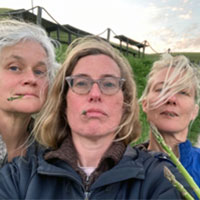 (p)Art of the Biomass is an art platform that collaborates across disciplines in different projects that explore multispecies relations as well as modes of environmental care and attention. Their context sensitive and processual work could be seen as (more-than-human) social sculptures that develop over time, through material manifestations, stories, walks, invitations, and proposals.
(p)Art of the Biomass is an art platform that collaborates across disciplines in different projects that explore multispecies relations as well as modes of environmental care and attention. Their context sensitive and processual work could be seen as (more-than-human) social sculptures that develop over time, through material manifestations, stories, walks, invitations, and proposals.
The three artists are also part of the art and research project Humus economicus at National Historical museums in Sweden, focused on human-soil relations.
www.partofthebiomass.se
www.humuseconomicus.se
Ida Idaida [Artist – Sweden]
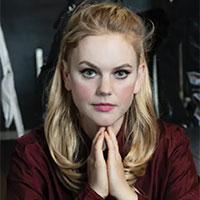
Photo: Christopher Dracke (cropped)
Enki Inkpen [Musician, poet, student Global Environmental History at Uppsala University, and course coordinator CEMUS – Sweden]
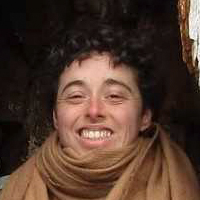 Enki Inkpen is a musician and poet, student of global environmental history at Uppsala University, and course coordinator at CEMUS. With CEMUS they have worked on four courses, including Perspectives on Climate Change: Ecopsychology, Art and Narratives, and they co-founded Art at the End of the World club. They are interested in the emotional disconnect between humans and their local nature, and how that relationship could be healed through engaged art, spirituality, and rewilding time with sound. They are hoping to do a PhD to further explore these topics, but in the meantime they can be found jumping in lakes and frolicking in forests.
Enki Inkpen is a musician and poet, student of global environmental history at Uppsala University, and course coordinator at CEMUS. With CEMUS they have worked on four courses, including Perspectives on Climate Change: Ecopsychology, Art and Narratives, and they co-founded Art at the End of the World club. They are interested in the emotional disconnect between humans and their local nature, and how that relationship could be healed through engaged art, spirituality, and rewilding time with sound. They are hoping to do a PhD to further explore these topics, but in the meantime they can be found jumping in lakes and frolicking in forests.
Stephen Jenkinson [Author, Master of Ceremony, Culture Activist, Storyteller, Off-grid small-scale Farmer, Carver, Keeper of the Great Hall – Canada]
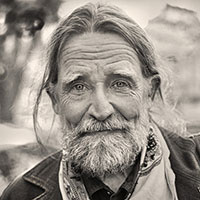 Jenkinson teaches internationally and is the creator and principal instructor of the Orphan Wisdom School. For years, after apprenticing to a master storyteller as a young man, acquiring a master’s degree in theology from Harvard Divinity school and another in social work from the University of Toronto, Stephen Jenkinson led the palliative care department in a major Canadian hospital and was assistant professor in a prominent Canadian medical school. He has worked extensively with caregivers, dying people and their families. Whilst sitting at the deathbeds of over a thousand people, he encountered again and again what he called a “wretched anxiety.” Rather than any one individual’s personal issue with dying, Jenkinson understood this as symptomatic of a cultural absence, a death phobia, a grief illiteracy. These experiences served to distil a number of questions: Has it always been this hard to die? When do we really begin to die, and what are we supposed to do then? How is it that grief is a skill, something to be learned and practised? Those questions and more spawned several books. He is the subject of the National Film Board of Canada feature length film documentary, Griefwalker (Dir.T. Wilson).
Jenkinson teaches internationally and is the creator and principal instructor of the Orphan Wisdom School. For years, after apprenticing to a master storyteller as a young man, acquiring a master’s degree in theology from Harvard Divinity school and another in social work from the University of Toronto, Stephen Jenkinson led the palliative care department in a major Canadian hospital and was assistant professor in a prominent Canadian medical school. He has worked extensively with caregivers, dying people and their families. Whilst sitting at the deathbeds of over a thousand people, he encountered again and again what he called a “wretched anxiety.” Rather than any one individual’s personal issue with dying, Jenkinson understood this as symptomatic of a cultural absence, a death phobia, a grief illiteracy. These experiences served to distil a number of questions: Has it always been this hard to die? When do we really begin to die, and what are we supposed to do then? How is it that grief is a skill, something to be learned and practised? Those questions and more spawned several books. He is the subject of the National Film Board of Canada feature length film documentary, Griefwalker (Dir.T. Wilson).
He is the author of Reckoning, co-written with Kimberly Ann Johnson (2022), and A Generation’s Worth: Spirit Work While the Crisis Reigns (2021), Come of Age: The Case for Elderhood in a Time of Trouble (2018), the award-winning Die Wise: A Manifesto for Sanity and Soul (2015 and translated into Hebrew and Turkish), Homecoming: The Haiku Sessions (a live teaching from 2013), How it All Could Be: A workbook for dying people and those who love them (2009), Angel and Executioner: Grief and the Love of Life – (a live teaching from 2009), and Money and The Soul’s Desires: A Meditation (2002). He was a contributing author to Palliative Care – Core Skills and Clinical Competencies (2007). Lost Nation Road (Dir.I.MacKenzie) is a glimpse behind-the-scenes of a soulful mystery train. His Nights of Grief and Mystery world tours, with fellow Canadian singer/ songwriter Gregory Hoskins, are odes to wonder, love letters for the willingness to know endings. 2023 World Tour Dates: August 14, 2023 – Nights of Grief & Mystery 2023 Tour: Malmö, Sweden, and August 17, 2023 – Nights of Grief & Mystery 2023 Tour: Stockholm, Sweden.
Henri Jumppanen [Photographer, journalist and poet – Finland]
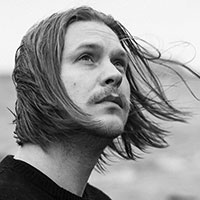 Henri Jumppanen is a professional photographer and journalist who also writes poetry. Based in Joensuu, Eastern Finland.
Henri Jumppanen is a professional photographer and journalist who also writes poetry. Based in Joensuu, Eastern Finland.
Mikael Kurkiala [Author and Researcher, the Swedish Church, Associate Professor of Cultural Anthropology at Uppsala University – Sweden]
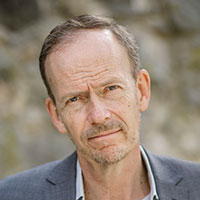 Mikael Kurkiala is associate professor of Cultural anthropology at Uppsala University and researcher at the Church Office. He is the author of, among other titles, In every drum beat the earth’s pulse: about the fear of differences of our time (Ordfront 2005) and When the Soul Goes into Exile: Modernity, Technology & the Sacred (Verbum 2019). He has also participated in several anthologies about the place of existential issues in contemporary society and is the editor of an annual anthology – Tidens tecken – (“Signs of the times”) published by Artos.
Mikael Kurkiala is associate professor of Cultural anthropology at Uppsala University and researcher at the Church Office. He is the author of, among other titles, In every drum beat the earth’s pulse: about the fear of differences of our time (Ordfront 2005) and When the Soul Goes into Exile: Modernity, Technology & the Sacred (Verbum 2019). He has also participated in several anthologies about the place of existential issues in contemporary society and is the editor of an annual anthology – Tidens tecken – (“Signs of the times”) published by Artos.
www.svenskakyrkan.se/forskning/publikationer/tidens-tecken
Alf Linderman [Associate Professor, Sociology of Religion, Uppsala University and Former Executive Director, Sigtuna Foundation – Sweden]
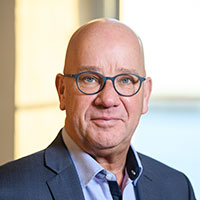 Alf Linderman is an Associate Professor in the sociology of religion at Uppsala University and has just ended his position as the Executive Director of the Sigtuna Foundation, a position he has held for more than 20 years. As a researcher, Linderman is specialized on research at the nexus of media, religion, and culture. During his long worktime at the Sigtuna Foundation, Linderman has been intensively involved in various interdisciplinary dialogues ranging from climate and sustainability issues to the analysis of the human condition and the exploration of human consciousness and free will.
Alf Linderman is an Associate Professor in the sociology of religion at Uppsala University and has just ended his position as the Executive Director of the Sigtuna Foundation, a position he has held for more than 20 years. As a researcher, Linderman is specialized on research at the nexus of media, religion, and culture. During his long worktime at the Sigtuna Foundation, Linderman has been intensively involved in various interdisciplinary dialogues ranging from climate and sustainability issues to the analysis of the human condition and the exploration of human consciousness and free will.
Ida Lod [Musician, Performer and Educator – Sweden]
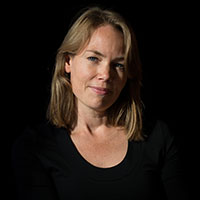
Photo: Max Sokoleski
Songs of the In-between is another on going collaboration with musician/composer David Heikkinen where music, performance and community-art are interwoven. Owl Woman, Ofelia Reversed and Dadaistic Diva are examples of her solo- productions where masking and demasking of the feminine are continuous explorations. As an educator and holistic voice therapist Ida focuses on guiding people to connect with their own creative voice through embodied voice-practices. Ida lives in Stockholm and was educated at the Academy of Music and Drama, University of Gothenburg.
Patricia Lorenzoni [Author, Cultural Critic, Historian, and Research fellow, Centre for Multidisciplinary Studies on Racism, Uppsala University – Sweden]
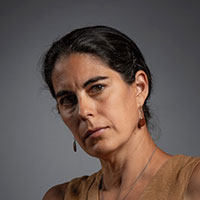
Photo: Niclas Fasth
Isabella Lövin [Author, co-chair Friends of Ocean Action and former Minister of Climate and Environment, Minister for International Development Cooperation and Deputy Prime Minister – Sweden]
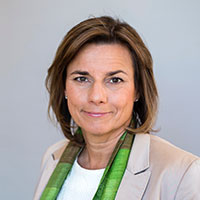
Photo: Kristian Pohl
www.weforum.org/friends-of-ocean-action
Lars Noväng [Artist – Sweden]
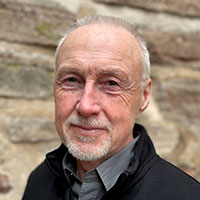 Lars Noväng’s artistic practice is characterized by a longstanding exploration of the agency of art, particularly in change processes. His most recent work, Ars Moriendi, investigates and treats two interrelated phenomena in our contemporary society; the widespread death phobia, and our tendency to become codependent with dysfunctional institutions and belief systems. By means of interacting with society as a Farewell Bureau/Parting Undertaker, this work is artistically exploring how farewell rituals can help people and organizations emancipate from their codependency with cultural artifacts, structures and thought patterns that stand in the way of societal change.
Lars Noväng’s artistic practice is characterized by a longstanding exploration of the agency of art, particularly in change processes. His most recent work, Ars Moriendi, investigates and treats two interrelated phenomena in our contemporary society; the widespread death phobia, and our tendency to become codependent with dysfunctional institutions and belief systems. By means of interacting with society as a Farewell Bureau/Parting Undertaker, this work is artistically exploring how farewell rituals can help people and organizations emancipate from their codependency with cultural artifacts, structures and thought patterns that stand in the way of societal change.
https://avskedsbyran.se
https://larsnovang.com
Henrik Ohlsson [Researcher and lecturer, Study of religion, Södertörn University – Sweden]
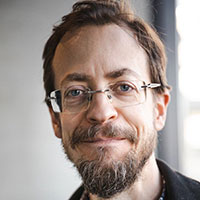 Henrik Ohlsson is a researcher and lecturer in the study of religion at Södertörn University in Sweden. He is interested in human-nature relations from historical, ethnographic and phenomenological perspectives, with a focus on the spiritual or existential dimensions of those relations. For his PhD thesis, he conducted field research in the Nordic countries among people engaged in organized practice for a deepened connection with nature. His thesis is connected to a larger project studying nature relations and secularity in the Baltic Sea region and includes researchers in Sweden, Estonia and Denmark. His earlier academic interests include issues concerning secularization in general and a particular focus on state policies towards religion in post-Soviet Central Asia.
Henrik Ohlsson is a researcher and lecturer in the study of religion at Södertörn University in Sweden. He is interested in human-nature relations from historical, ethnographic and phenomenological perspectives, with a focus on the spiritual or existential dimensions of those relations. For his PhD thesis, he conducted field research in the Nordic countries among people engaged in organized practice for a deepened connection with nature. His thesis is connected to a larger project studying nature relations and secularity in the Baltic Sea region and includes researchers in Sweden, Estonia and Denmark. His earlier academic interests include issues concerning secularization in general and a particular focus on state policies towards religion in post-Soviet Central Asia.
Mattias Olsson [Filmmaker and Founder of Campfire Stories – Sweden]
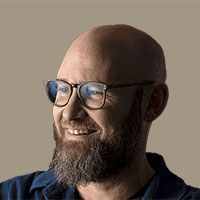 Filmmaker Mattias Olsson is the founder of Campfire Stories, which is a film platform that aims to inspire change towards a future of ecological balance and human sanity. His background is that of a still photographer, which was his profession during the 13 years he lived in New York. Since he moved back to Sweden in 2007 he’s produced five films for Swedish television (SVT) and 14 films for Campfire Stories. He’s also a podcast producer and a lecturer. And an enthusiastic hobby-farmer, with a particular love for growing tomatoes and chilies.
Filmmaker Mattias Olsson is the founder of Campfire Stories, which is a film platform that aims to inspire change towards a future of ecological balance and human sanity. His background is that of a still photographer, which was his profession during the 13 years he lived in New York. Since he moved back to Sweden in 2007 he’s produced five films for Swedish television (SVT) and 14 films for Campfire Stories. He’s also a podcast producer and a lecturer. And an enthusiastic hobby-farmer, with a particular love for growing tomatoes and chilies.
campfire-stories.org
Vitalija Povilaityte-Petri [Transdisciplinary researcher at Brussels Health Gardens – Lithuania, Belgium, Sweden]
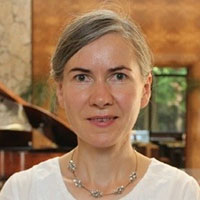 Vitalija Povilaityte-Petri is a pharmacist and transdisciplinary researcher. She studies how relationships with plants, nature medicine, nature-based health practices and traditional local knowledge contribute to human connectedness with nature and regeneration of health.
Vitalija Povilaityte-Petri is a pharmacist and transdisciplinary researcher. She studies how relationships with plants, nature medicine, nature-based health practices and traditional local knowledge contribute to human connectedness with nature and regeneration of health.
Francis Rogers [Activist, writer, ethnographer, educator and filmmaker – Sweden]
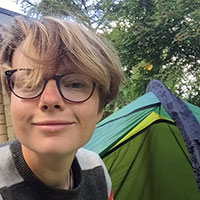 Francis Rogers is an Uppsala-based environmental activist, writer, ethnographer, educator and filmmaker working to protect forests in Uppsala and Sápmi. As a beginner animal tracker, forager and tree climber, they are learning to love forests as much as mountains. After completing their Master’s thesis narrating their journey along the German Danish border fence, they hope to contribute to ecosystem restoration and write a novel about a time-travelling greenhouse.
Francis Rogers is an Uppsala-based environmental activist, writer, ethnographer, educator and filmmaker working to protect forests in Uppsala and Sápmi. As a beginner animal tracker, forager and tree climber, they are learning to love forests as much as mountains. After completing their Master’s thesis narrating their journey along the German Danish border fence, they hope to contribute to ecosystem restoration and write a novel about a time-travelling greenhouse.
Juni Sinkkonen [Eco-psychologist, environmental activist, writer and facilitator – Finland]
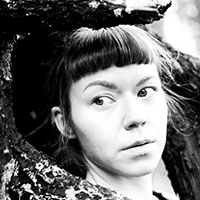 Juni Sinkkonen is an eco-psychologist and environmental activist who writes, gives lectures and facilitates workshops on environmental emotions and deep ecological worldview. Based in Joensuu, Eastern Finland.
Juni Sinkkonen is an eco-psychologist and environmental activist who writes, gives lectures and facilitates workshops on environmental emotions and deep ecological worldview. Based in Joensuu, Eastern Finland.
Jacek Smolicki [Artist, researcher, designer and educator – Sweden]
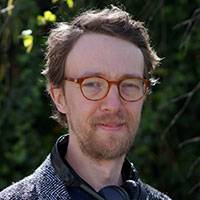 Jacek Smolicki is an interdisciplinary artist, researcher, designer and educator. His work brings historical, critical and existential dimensions to listening, recording and archiving practices in human and more-than-human contexts. Besides working with historical archives, media, and heritage, Smolicki develops other modes of sensing, recording, and mediating stories and signals from specific sites, scales, and temporalities. His work is manifested through soundwalks, soundscape compositions, diverse forms of writing, site-responsive performances, and audiovisual installations (e.g. Young Art Biennial, Moscow, In-Sonora, Madrid, Ars Electronica, Linz, Atlantic Center for the Arts, New Smyrna Beach, Holden Chapel, Harvard University, Vancouver New Music, Vancouver). He holds a PhD in Media and Communications from Malmö University and has recently completed a postdoc position at Linköping University. He has also been a guest researcher at Uppsala University, Simon Fraser University, and 2022/2023 Fulbright visiting scholar at Harvard. In 2019 he co-founded the Walking Festival of Sound, a transdisciplinary event focusing on the creative and critical potential of walking through and listening to our everyday surroundings. Smolicki is the editor of “Soundwalking. Through Time, Space, and Technologies,” published in 2023 via Routledge.
Jacek Smolicki is an interdisciplinary artist, researcher, designer and educator. His work brings historical, critical and existential dimensions to listening, recording and archiving practices in human and more-than-human contexts. Besides working with historical archives, media, and heritage, Smolicki develops other modes of sensing, recording, and mediating stories and signals from specific sites, scales, and temporalities. His work is manifested through soundwalks, soundscape compositions, diverse forms of writing, site-responsive performances, and audiovisual installations (e.g. Young Art Biennial, Moscow, In-Sonora, Madrid, Ars Electronica, Linz, Atlantic Center for the Arts, New Smyrna Beach, Holden Chapel, Harvard University, Vancouver New Music, Vancouver). He holds a PhD in Media and Communications from Malmö University and has recently completed a postdoc position at Linköping University. He has also been a guest researcher at Uppsala University, Simon Fraser University, and 2022/2023 Fulbright visiting scholar at Harvard. In 2019 he co-founded the Walking Festival of Sound, a transdisciplinary event focusing on the creative and critical potential of walking through and listening to our everyday surroundings. Smolicki is the editor of “Soundwalking. Through Time, Space, and Technologies,” published in 2023 via Routledge.
Isak Stoddard [PhD Researcher, Natural Resources and Sustainable Development, Uppsala University – Sweden]
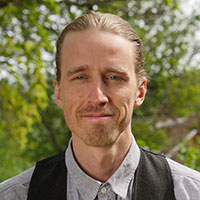 Isak Stoddard is pursuing a PhD in Natural Resources and Sustainable Development at the Department of Earth Sciences, Uppsala University. In his current research he studies the imaginaries and temporalities underpinning regional climate and energy transitions within Sweden. His educational background is in engineering physics and over the past two decades he’s spent much of his time developing and supporting transdisciplinary approaches to higher education at the Centre for Environment and Development Studies (CEMUS).
Isak Stoddard is pursuing a PhD in Natural Resources and Sustainable Development at the Department of Earth Sciences, Uppsala University. In his current research he studies the imaginaries and temporalities underpinning regional climate and energy transitions within Sweden. His educational background is in engineering physics and over the past two decades he’s spent much of his time developing and supporting transdisciplinary approaches to higher education at the Centre for Environment and Development Studies (CEMUS).
Christoffer Söderlund Kanarp [PhD Candidate, Environmental Communication, SLU – Sweden]
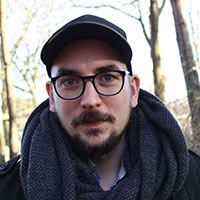 Christoffer Söderlund Kanarp is a PhD Candidate in Environmental Communication at SLU. His research concerns climate change adaptation. Specifically, how our response to the changing climate is shaped on the one hand by our collective imaginaries of the future, and on the other practical consciousness and routines in everyday life.
Christoffer Söderlund Kanarp is a PhD Candidate in Environmental Communication at SLU. His research concerns climate change adaptation. Specifically, how our response to the changing climate is shaped on the one hand by our collective imaginaries of the future, and on the other practical consciousness and routines in everyday life.
Currently, his research focuses on how civil servants, at different levels in the public sector, reflect on and work with adaptation, with a special interest in meaning making processes, power dynamics and the values underpinning visions of the future.
Pella Thiel [Author, Activist and Educator – Sweden]
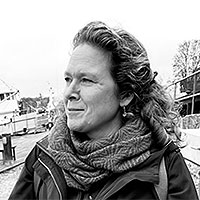 Pella Thiel is a maverick ecologist, activist and author who works with relational, systemic activism, change processes and leadership för a society in harmony with nature. She is a knowledge expert in the UN Harmony with Nature initiative and co-founder of swedish hubs of international networks like the Swedish Transition Network and End Ecocide Sweden. She also teaches ecopsychology and is a part of the eco-psychology/art/activist NGO Lodyn.
Pella Thiel is a maverick ecologist, activist and author who works with relational, systemic activism, change processes and leadership för a society in harmony with nature. She is a knowledge expert in the UN Harmony with Nature initiative and co-founder of swedish hubs of international networks like the Swedish Transition Network and End Ecocide Sweden. She also teaches ecopsychology and is a part of the eco-psychology/art/activist NGO Lodyn.
Third task [Sweden]
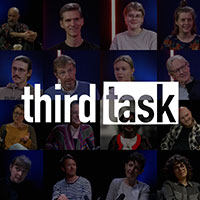 Third task is a project with the goal of engaging students in the implementation of outreach responsibilities of universities written in the Swedish law (third task, i.e. tredje uppgiften). We aim to stimulate student involvement in the third task. As there are many students involved in the climate issue and because they are believed to be able to communicate climate research in an easy-to-understand way, their engagement generates a greater spread of the message.
Third task is a project with the goal of engaging students in the implementation of outreach responsibilities of universities written in the Swedish law (third task, i.e. tredje uppgiften). We aim to stimulate student involvement in the third task. As there are many students involved in the climate issue and because they are believed to be able to communicate climate research in an easy-to-understand way, their engagement generates a greater spread of the message.
https://klimatstudenterna.se/third-task
Aaron Tuckey [Spoken Word Artist – Sweden]
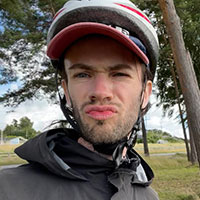 Aaron holds degrees in political science and sustainability science, and half a degree in classical music composition. He has been writing poetry for 10 years in parallel to his career in climate and sustainability within academia and the public sector. During recent years, his writing has focused on the multiple sustainability crises humanity currently faces, both to raise public awareness on stage and as an outlet for his own frustration and concern.
Aaron holds degrees in political science and sustainability science, and half a degree in classical music composition. He has been writing poetry for 10 years in parallel to his career in climate and sustainability within academia and the public sector. During recent years, his writing has focused on the multiple sustainability crises humanity currently faces, both to raise public awareness on stage and as an outlet for his own frustration and concern.
Ceciel Verheij [Anthropologist and Translator – The Netherlands]
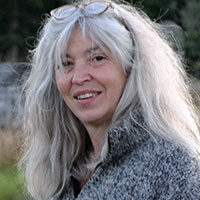 Ceciel has a background in Social Anthropology and she currently works as a translator of literature. Ceciel also occasionally facilitates artistic processes with groups, in which embodied experience, presence and awareness is foregrounded.
Ceciel has a background in Social Anthropology and she currently works as a translator of literature. Ceciel also occasionally facilitates artistic processes with groups, in which embodied experience, presence and awareness is foregrounded.
Malin Zimm [Architect, Researcher and Writer – Sweden]
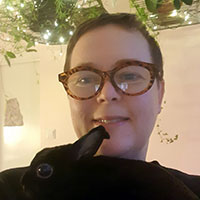 Malin Zimm is an architect PhD, researcher and writer. Zimm has been a free-lance writer, researcher and architecture critic since 2000, contributing to numerous Swedish and international publications in the fields of architecture, art and urbanism. She was the Chief Editor of the architecture magazine Arkitektur from 2019 until 2022 as well as Chief Editor of Rum magazine between 2007 and 2009. Zimm was Director of Research, manager of ARQ research fund and Research strategist at White Arkitekter from 2014 until 2019. She worked as Senior Advisor in Architecture at ArkDes 2010-2014. Zimm presented her PhD dissertation at KTH School of Architecture in 2005, with the title “Losing the Plot – Architecture and Narrativity in Fin-de-Siècle Media Cultures”, discussing the concept of virtuality, not primarily as a technology but as a cognitive ability. Together with Mattias Bäcklin she is running the mobile art and architecture gallery Zimm Hall since 2015.
Malin Zimm is an architect PhD, researcher and writer. Zimm has been a free-lance writer, researcher and architecture critic since 2000, contributing to numerous Swedish and international publications in the fields of architecture, art and urbanism. She was the Chief Editor of the architecture magazine Arkitektur from 2019 until 2022 as well as Chief Editor of Rum magazine between 2007 and 2009. Zimm was Director of Research, manager of ARQ research fund and Research strategist at White Arkitekter from 2014 until 2019. She worked as Senior Advisor in Architecture at ArkDes 2010-2014. Zimm presented her PhD dissertation at KTH School of Architecture in 2005, with the title “Losing the Plot – Architecture and Narrativity in Fin-de-Siècle Media Cultures”, discussing the concept of virtuality, not primarily as a technology but as a cognitive ability. Together with Mattias Bäcklin she is running the mobile art and architecture gallery Zimm Hall since 2015.
May-Britt Öhman [Associate Professor, Researcher, Centre for Multidisciplinary Studies on Racism, CEMFOR, Uppsala University – Sweden]
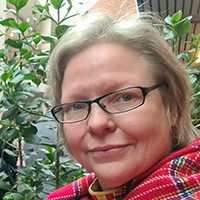 May-Britt Öhman is Associate Professor in Environmental History, PhD in History of Technology, researcher and leader of the research group “Dálkke: Indigenous Climate Change Studies”, at the Centre for Multidisciplinary Studies on Racism, CEMFOR, Uppsala University, and also leads the Sámeednama friddja universitehta– Sámi Land Free University – initiative. She is Lule/Forest Sámi from Lule River/Julevädno, with heritage also from the Torne river valley on the colonial border between Sweden and Finland. Dr. Öhman was in 2023 appointed as expert to the Swedish government Committee on Reindeer Lands – Renmarkskommittén.
May-Britt Öhman is Associate Professor in Environmental History, PhD in History of Technology, researcher and leader of the research group “Dálkke: Indigenous Climate Change Studies”, at the Centre for Multidisciplinary Studies on Racism, CEMFOR, Uppsala University, and also leads the Sámeednama friddja universitehta– Sámi Land Free University – initiative. She is Lule/Forest Sámi from Lule River/Julevädno, with heritage also from the Torne river valley on the colonial border between Sweden and Finland. Dr. Öhman was in 2023 appointed as expert to the Swedish government Committee on Reindeer Lands – Renmarkskommittén.
As leader of “Dálkke: Indigenous Climate Change Studies” research group, funded by FORMAS within the National programme on Climate, at CEMFOR, Uppsala University, she leads supradisciplinary national and international collaboration to:
– promote Indigenous as well as Western environmentally friendly sociotechnical innovations,
– analyze how technical design and shape of energy systems relate to efforts to reduced consumption,
– analyze consequences of climate change for Indigenous communities
– analyze CO2 emissions and climate change impact from technical designs such as wind power, nuclear power, hydropower, solar cells
– analyze how technical designs claimed to be environmentally friendly affect Indigenous communities already under hard pressure from colonization,
– analyze how more-than-humans, forests, lands and waters are affected by colonial expansions.
– document and analyze racism, discrimination, land grabbing and settler colonial practices within climate change policies and actions
– contribute the establishment of the field Indigenous Climate Change Studies.
Dr. Öhman leads the FORMAS financed research project “Living without oil?! Rethinking relations with lands and waters with Indigenous Land Based Expertise for a transition towards a fossil free welfare society” which amongst other aims at developing the understanding of Indigenous Land Based expertise, and the transfer of this knowledge as well as understanding into higher education. Dr. Öhman has since more than a decade been active in several Sámi associations; board member of Silbonah Sámesijdda 2011-2021, member of board of the Swedish National Saami Association, SSR, 2011-2015, deputy member of the Sámi Parliament 2013-2017. Öhman is one of the founders of UPPSAM – the association and network for Sámi related research in Uppsala.
Dr. Öhman’s research focus is on large technical systems, hydropower, water resources, energy production/consumption, mines, environment, risk and safety, decolonisation and healing from colonial traumas, Feminist Technoscience and Indigenous Methodologies/Theories. Geographical focus is on Sábme, the Arctic and comparative studies with other Indigenous territories around the world.
www.katalog.uu.se/empinfo/?id=N8-902
www.cemfor.uu.se/research-projects/dalkke–indigenous-climate-change-studies
www.samelandsfriauniversitet.com/omabout
www.maybrittohman.com
ClimateExistence 2021
Are we now in the tunnel at the end of the light?
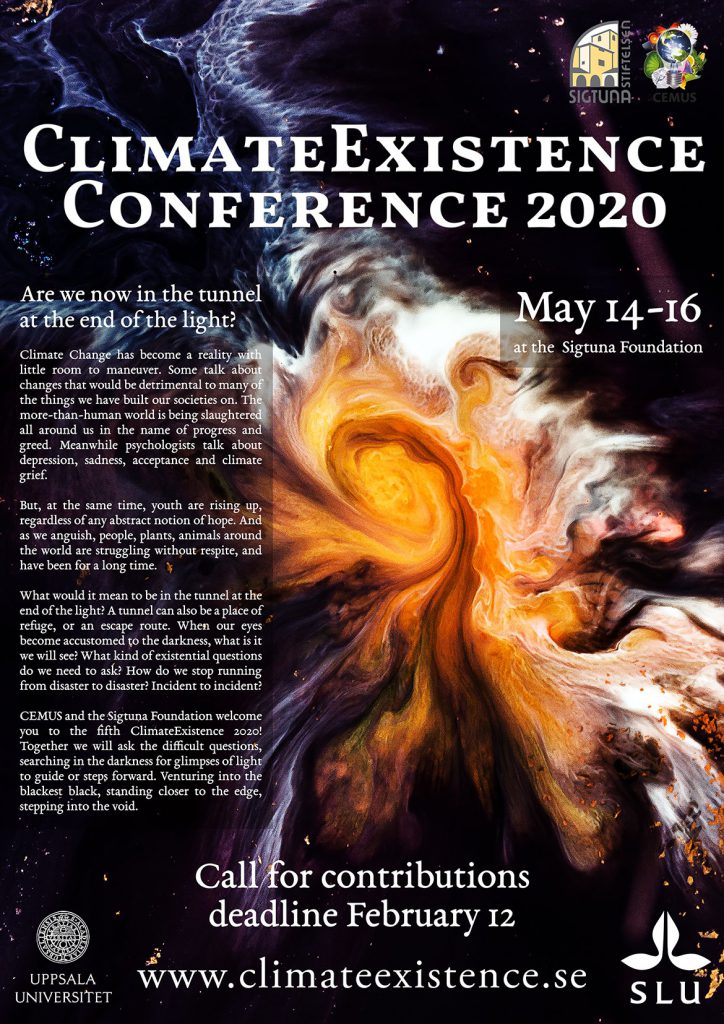 Climate Change has become a reality with little room to maneuver. Some talk about changes that would be detrimental to many of the things we have built our societies on. The more-than-human world is being slaughtered all around us in the name of progress and greed. Meanwhile psychologists talk about depression, sadness, acceptance and climate grief.
Climate Change has become a reality with little room to maneuver. Some talk about changes that would be detrimental to many of the things we have built our societies on. The more-than-human world is being slaughtered all around us in the name of progress and greed. Meanwhile psychologists talk about depression, sadness, acceptance and climate grief.
But, at the same time, youth are rising up, regardless of any abstract notion of hope. And as we anguish, people, plants, animals around the world are struggling without respite, and have been for a long time.
What would it mean to be in the tunnel at the end of the light? A tunnel can also be a place of refuge, or an escape route. When our eyes become accustomed to the darkness, what is it we will see? What kind of existential questions do we need to ask? How do we stop running from disaster to disaster? Incident to incident?
CEMUS and the Sigtuna Foundation welcome you to the fifth ClimateExistence 2020! Together we will ask the difficult questions, searching in the darkness for glimpses of light to guide or steps forward. Venturing into the blackest black, standing closer to the edge, stepping into the void.
Concept inspired by:
”The tunnel at the end of the light” is inspired by Tomas Andersson Wij’s song “Mörkrets hastighet” (the speed of darkness) from the record “Avsändare okänd” (sender unknown) http://tomasanderssonwij.se/album/avsandare-okand/
MIT engineers develop “blackest black” material to date http://news.mit.edu/2019/blackest-black-material-cnt-0913
When: May 14-16 2020
Where: The Sigtuna Foundation, Sigtuna Sweden
Program
Thursday August 12
Time |
Program |
| 9.00-10.00 | Registration and morning coffee [20 Carin & Thorsten, next to the reception] |
| 10.00-10.20 | Kieli music The Sigtuna Foundation and CEMUS Welcome to ClimateExistence 2021 Owl woman performance [11 Stora Salen] |
| 10.20-11.15 | Jan van Boeckel “Mindful schizophrenia – Keeping one’s sanity in face of the ecological emergency” [11 Stora Salen] |
| 11.15-12.00 | Åsa Elmstam on her art Mattias Olsson on his filmmaking [11 Stora Salen] |
| 12.00-13.15 | Lunch |
| 13.15-14.00 | Pella Thiel “Aligning Law with Life” [11 Stora Salen] |
| 14.00-15.30 | Bishop Martin Modéus “On Holy Ground”
Bishop Martin Modéus, Anita Goldman and Pella Thiel conversation moderated by Malin Östman [11 Stora Salen] |
| 15.30-16.00 | Fika and check-in to rooms |
| 16.00-17.15 | Parallel sessions
Sofia Ahlberg Writers on the Storm: A workshop on reading and writing in the Anthropocene [17 Tacksamheten]
Vidar Vetterfalk Martin Hultman Sohanur Raman Men, Masculinities and Climate Justice. Is changing masculine norms and behaviour an important key to end fossil fueled Patriarchy? [14 Karaktären]
Martin Hedberg Scenarios – how to deal with uncertainty and transformation [15 Framtiden]
Mattias Olsson Campfire Podcast Presentation. Audio clips from inspiring people I’ve met along my path of transition [11 Stora Salen] |
| 17.15-18.30 | Pre-dinner programme – bar and possibility to book sauna (talk to the reception) Art and installations |
| 17.30 | Qigong with Gröna Draken 17.30 [Meet outside 1 Main entrance] |
| 18.30-20.00 | Dinner |
| 20.00 | Mattias Olsson film “Into the Soil” and conversation [11 Stora Salen] |
Friday August 13
Time |
Program |
| 7.00-08.30 | Breakfast |
| 8.30-10.50 | Parallel sessions including fika (fika avalible 10.00-11.00)
Jan Van Boeckel Ceciel Verheij Linking the missing links: an artful workshop on metamorphoses of organic forms [17 Tacksamheten]
Pella Thiel Rights of Nature – a regenerative movement on personal and political level [14 Karaktären & outdoors]
Rickard Fornstedt Helena Fornstedt The climate comic – Building climate transition narratives through sequential arts [15 Framtiden]
Ingrid M. Rieser and Nora Bateson Live podcast session: An Ecology of Mind, a Forest of Thought [11 Stora Salen] |
| 11.00-11.40 | Mikael Kurkiala “Beyond the pandemic: Some reflections on post-covid realities” [11 Stora Salen] |
| 11.45-12.30 | May-Britt Öhman “What if it was the Sámi who ruled the Sweonas and not the other way round? Indigenous perspectives challenging Western modernity and the destructive detachment from loving relationships to lands, waters, humans and more-than-humans” Followed by conversation with Mariam Carlsson Kanyama [11 Stora Salen] |
| 12.30-13.30 | Lunch |
| 13.30-15.55 | Parallel sessions including fika (fika available 15.15-16.00)
Nora Bateson Warm Data Lab and test of rigor [15 Framtiden]
Papersession/Reflections on ethics, fiction and the great falsification
Pia Skoglund Maud M.L. Eriksen
André Dutra Workshop: What can we teach them? – a brief reflection on Sustainability and Education in Latin America [17 Tacksamheten] |
| 16.00-17.00 | Anita Goldman “A Temple in Time or Why God can play a role in Climate Activism” [11 Stora Salen] |
| 17.00-18.30 | Pre-dinner programme – bar and possibility to book sauna (talk to the reception) Art and installations |
| 18.30-20.30 | Dinner |
| 21.00 | Maria Niwa with Kieli Concert [11 Stora Salen] |
Saturday August 14
Time |
Program |
| 7.00 | Breakfast |
| 7.45- | Alexander Crawford Elective morning walk/reflection [Meet outside 1 Main entrance] |
| 8.45-09.25 | Nora Bateson “A brand new piece of theory to meet the insidiousness of systemic transformation” [11 Stora Salen] |
| 9.30-10.15 | Ida Lod The Owl Woman is a poetic and musical oracle living in the borderlands between life and death. She welcomes you to join her interactive performance-rituals where you will be invited embrace death and to honor the Unseen [11 Stora Salen] |
| 10.15-10.45 | Fika and check-out of rooms (at the latest) |
| 10.45-12.00 | Stefania Barca “Undoing the Anthropocene. An ecofeminist perspective” [11 Stora Salen] |
| 12.00-13.00 | Lunch |
| 13.00-14.15 | Anita Goldman and Dan Jönsson 20-tal conversation “Utopian dreams, Climate Change, and the Issue of Class” [11 Stora Salen] |
| 14.20-15.30 | Isak Stoddard and guests End of conference conversations Kieli music [11 Stora Salen] |
| 15.30-16.00 | Fika and end of conference |
Guests and contributors
Sofia Ahlberg [Vice Dean, Faculty of Languages and Associate Professor, Literature and Pedagogy, Department of English, Uppsala University – Sweden]
 I am the Vice Dean of the Faculty of Languages at Uppsala University, Sweden, with responsibility for education and collaboration, and Associate Professor in Literature and Pedagogy at the Department of English, also at Uppsala University. I teach and research on contemporary literature, pedagogy, and ecocriticism. My most recent book Teaching Literature in Times of Crisis (Routledge, 2021) has just been published. My other publications include another monograph Atlantic Afterlives in Contemporary Fiction (Palgrave, 2016) as well as numerous chapters and articles in edited collections and journals, most recently in The Handbook of Twentieth and Twenty-First Century Literature and Science (Palgrave, 2020) and Teaching the Literature of Climate Change (MLA, forthcoming). I contributed to a highly original edited collection called Loanwords to Live With: An Ecotopian Lexicon (Minnesota UP, 2019) and my essay on the Swedish word “fotminne” can be read about in “Parlör for ett vettigare sätt att tala om klimatet” (SvD, 2020) as well as in “The Search for New Words to Make us Care about the Climate Crisis” in The New Yorker, 2020.
I am the Vice Dean of the Faculty of Languages at Uppsala University, Sweden, with responsibility for education and collaboration, and Associate Professor in Literature and Pedagogy at the Department of English, also at Uppsala University. I teach and research on contemporary literature, pedagogy, and ecocriticism. My most recent book Teaching Literature in Times of Crisis (Routledge, 2021) has just been published. My other publications include another monograph Atlantic Afterlives in Contemporary Fiction (Palgrave, 2016) as well as numerous chapters and articles in edited collections and journals, most recently in The Handbook of Twentieth and Twenty-First Century Literature and Science (Palgrave, 2020) and Teaching the Literature of Climate Change (MLA, forthcoming). I contributed to a highly original edited collection called Loanwords to Live With: An Ecotopian Lexicon (Minnesota UP, 2019) and my essay on the Swedish word “fotminne” can be read about in “Parlör for ett vettigare sätt att tala om klimatet” (SvD, 2020) as well as in “The Search for New Words to Make us Care about the Climate Crisis” in The New Yorker, 2020.
Stefania Barca [Zennström Professor in Climate Change Leadership, Uppsala University – Italy, Portugal & Sweden]
 I am a scholar in Environmental Humanities, with a strong commitment to environmental and climate justice. I develop my research and teaching at the intersection between academia and social movements – particularly those engaged in a Just Transition. For the past 12 years I have been investigating the environmental agency of labor and community organizations in Italy and internationally, taking into account both waged industrial work and unwaged care work. My latest book, Forces of Reproduction. Notes for a counterhegemonic Anthropocene (Cambridge University Press), released in November 2020, reflects the results of this research pathway. The book claims that the roots of the planetary crisis lay in the deep structural inequalities and injustice that govern human societies from local to global scale, producing a systematic degradation of life systems, and the widespread violation of both human and nonhuman rights. Taking an historical approach, it sees the climate crisis as a result of intersecting patterns of colonialism, heteropatriarchy, exploitation of labor and human supremacy over the web of life – all converging towards a master model of modernity, which devalues and depletes reproduction and care. Feminist political ecologists call this “white/m-Anthropocene”. Consequently, my book calls attention towards the labour of caring for both humans and their biophysical environment, and suggests that this labour is what is keeping the world alive – so it is truly vital to recognize and support it.
I am a scholar in Environmental Humanities, with a strong commitment to environmental and climate justice. I develop my research and teaching at the intersection between academia and social movements – particularly those engaged in a Just Transition. For the past 12 years I have been investigating the environmental agency of labor and community organizations in Italy and internationally, taking into account both waged industrial work and unwaged care work. My latest book, Forces of Reproduction. Notes for a counterhegemonic Anthropocene (Cambridge University Press), released in November 2020, reflects the results of this research pathway. The book claims that the roots of the planetary crisis lay in the deep structural inequalities and injustice that govern human societies from local to global scale, producing a systematic degradation of life systems, and the widespread violation of both human and nonhuman rights. Taking an historical approach, it sees the climate crisis as a result of intersecting patterns of colonialism, heteropatriarchy, exploitation of labor and human supremacy over the web of life – all converging towards a master model of modernity, which devalues and depletes reproduction and care. Feminist political ecologists call this “white/m-Anthropocene”. Consequently, my book calls attention towards the labour of caring for both humans and their biophysical environment, and suggests that this labour is what is keeping the world alive – so it is truly vital to recognize and support it.
https://katalog.uu.se/profile?id=N21-267[/su_expand]
Nora Bateson [Filmmaker, Writer, Educator, Lecturer, President of the International Bateson Institute – Sweden & USA]
 Nora Bateson, is an award-winning filmmaker, research designer, writer and educator, as well as President of the International Bateson Institute based in Sweden. Her work asks the question “How we can improve our perception of the complexity we live within, so we may improve our interaction with the world?”. An international lecturer, researcher and writer, Nora wrote, directed and produced the award-winning documentary, An Ecology of Mind, a portrait of her father, Gregory Bateson.
Nora Bateson, is an award-winning filmmaker, research designer, writer and educator, as well as President of the International Bateson Institute based in Sweden. Her work asks the question “How we can improve our perception of the complexity we live within, so we may improve our interaction with the world?”. An international lecturer, researcher and writer, Nora wrote, directed and produced the award-winning documentary, An Ecology of Mind, a portrait of her father, Gregory Bateson.
Jan van Boeckel [Professor Art & Sustainability, Centre Art & Sustainability, Hanze UAS, Artist and Film-maker – The Netherlands]
 As of June 2020, dr Jan van Boeckel took up his position as professor Art & Sustainability at the Research Centre Art & Sustainability of Hanze UAS. He started his career as a cultural anthropologist. With the passing of time, Jan increasingly focused his attention on both his own developing artistic practice and on the teaching of art; two orientations that eventually converged into the role of artist-educator. Jan also has ample experience in performing research projects on the cutting edge of art and sustainability. Specializing himself in the new field of arts-based environmental education, he received his degree as Doctor of Arts in arts education at Aalto University, Helsinki, in 2013. In the past years he has worked in several Northern countries – among which Iceland, Sweden, Estonia and Finland. Now, at Hanze UAS at Groningen, Jan’s primary research interest is in how art can help us face the great challenges of our time, of which the ecological crisis arguably is the most pressing.
As of June 2020, dr Jan van Boeckel took up his position as professor Art & Sustainability at the Research Centre Art & Sustainability of Hanze UAS. He started his career as a cultural anthropologist. With the passing of time, Jan increasingly focused his attention on both his own developing artistic practice and on the teaching of art; two orientations that eventually converged into the role of artist-educator. Jan also has ample experience in performing research projects on the cutting edge of art and sustainability. Specializing himself in the new field of arts-based environmental education, he received his degree as Doctor of Arts in arts education at Aalto University, Helsinki, in 2013. In the past years he has worked in several Northern countries – among which Iceland, Sweden, Estonia and Finland. Now, at Hanze UAS at Groningen, Jan’s primary research interest is in how art can help us face the great challenges of our time, of which the ecological crisis arguably is the most pressing.
Alexander Crawford [Educator and Consultant – Sweden]
 Alexander Crawford is a Stockholm-based educator and analyst, working as independent consultant and learning process designer. He works in global projects that explore interdependencies and complexity, in Sweden, Europe and China. For over ten years, he was research director and project director at the Tällberg Foundation, where he was lead program designer and project leader for the yearly global multi-stakeholder and cross-disciplinary Tällberg Forum (2005-2013). He is also an experienced analyst of economic, social and political trends, exploring the causes and consequences of global developments. Alexander is also involved in several non-profits and start-ups.
Alexander Crawford is a Stockholm-based educator and analyst, working as independent consultant and learning process designer. He works in global projects that explore interdependencies and complexity, in Sweden, Europe and China. For over ten years, he was research director and project director at the Tällberg Foundation, where he was lead program designer and project leader for the yearly global multi-stakeholder and cross-disciplinary Tällberg Forum (2005-2013). He is also an experienced analyst of economic, social and political trends, exploring the causes and consequences of global developments. Alexander is also involved in several non-profits and start-ups.
His session Listening to (outer and inner) nature at 7.45 on Saturday August 14 will feature an early morning nature walk with dialogue exercizes and reflection.
Andé Dutra [Course Coordinator CEMUS – Sweden & Brazil]
 André is a Bachelor’s in International Relations, a Specialist in Public Administration and Master in Sustainable Development (Cemus/UU). He is currently in the second year of the Master’s degree in Sociology of Education (UU).
André is a Bachelor’s in International Relations, a Specialist in Public Administration and Master in Sustainable Development (Cemus/UU). He is currently in the second year of the Master’s degree in Sociology of Education (UU).
He moved to Sweden since 2016 and works as a Course Coordinator at CEMUS/Uppsala University, for different courses, since 2017. There he co-created the course “Sustainability and Development in Latin America – past, present, future”. He has been politically active in Brazil and a candidate for the local parliament in the capital city of Brasília, both in 2010 and 2014 and was member of the board of a political party and President of its Youth for several years. He worked as a permanent official of the Government of Brasilia for 11 years, in various institutions, aiming especially issues such as youth, labor and mobility/public transport. He continues to be active as a political activist in the field of environment and sustainability and movements for democracy and education in Brazil and Sweden. He is on the board of a youth television program run by the Brazilian Congress “Câmara Ligada” and member in the Brazilian Network for Sustainability Policy Action (Rede de Ação Política pela Sustentabilidade – RAPS Brasil). Finally, in 2021 he was elected to be in the board of Latinamerikagrupperna Sverige.
https://katalog.uu.se/profile/
Åsa Elmstam [Artist – Sweden]
 Åsa Elmstam, is an artist and a climate activist. She works with visualizing the climate crises and our over-consumption in exhibition form since 2007. Her background is a blend of silversmithing, jewelery art (Konstfack – Ädellab), art, crafts and studies In sustainable development in design (Sustanible Projects – University Tokyo Zokei, in Japan) etc. She is based at Södermalm in Stockholm.
Åsa Elmstam, is an artist and a climate activist. She works with visualizing the climate crises and our over-consumption in exhibition form since 2007. Her background is a blend of silversmithing, jewelery art (Konstfack – Ädellab), art, crafts and studies In sustainable development in design (Sustanible Projects – University Tokyo Zokei, in Japan) etc. She is based at Södermalm in Stockholm.
Maud M.L. Eriksen [Senior lecturer, Department of Theology, Ethics and Philosophy of Religion, Uppsala University – Sweden]
 Lecturer in Theological ethics at Uppsala University and organic gardener. In her teaching and research (at Uppsala university since 2005), Maud Eriksen has had a particular focus on virtue ethics and relational ethics. She has primarily worked in intersections between literature/film (often Science Fiction), theology and philosophy. She wrote her PhD dissertation (Oslo, 2005) on the literature and philosophy of Iris Murdoch, read through the lenses of Paul Ricoeur and Mikhail Bakhtin.
Lecturer in Theological ethics at Uppsala University and organic gardener. In her teaching and research (at Uppsala university since 2005), Maud Eriksen has had a particular focus on virtue ethics and relational ethics. She has primarily worked in intersections between literature/film (often Science Fiction), theology and philosophy. She wrote her PhD dissertation (Oslo, 2005) on the literature and philosophy of Iris Murdoch, read through the lenses of Paul Ricoeur and Mikhail Bakhtin.
Taking a break from academia during the years 2017-2019, she trained as an organic gardener and has practiced in a garden centre as well as running a Community garden in the multi cultural area where she lives (Flemingsberg south of Stockholm). Regenerative agriculture and permaculture are particular interests as a gardener – but they tie well into her professional work as an ethicsist.
The combination of ethics and gardening has initiated a passionate interest for current and future research in environmental ethics, as well as sustainability issues with regard to individual, social and natural dimensions.
Eylem Ertürk [Researcher, artist and curator – Austria & Turkey]
 Eylem Ertürk is a researcher, artist and curator living and working in Vienna and Istanbul. She has a background in social design, fine arts photography and cultural management. Since 2005 she has led/initiated/worked in several projects and art institutions in Istanbul as a researcher, editor, curator or manager. She taught at Istanbul Bilgi University Arts and Cultural Management Programme and edited the Local Cultural Policies Handbook (2011). In her work at Anadolu Kültür (2010-2017), she focused on contemporary art and cultural dialogue and curated BAK: Revealing the City through Memory project, publications and exhibitions. She is the co-curator of the Memory and Arts in Turkey project (2018-2021) and co-editor of the book Talks on Memory and Arts 2020. She is a PhD candidate at the Academy of Fine Arts Vienna with a focus on social memory, politics of the image and representation in public space. She is the founding member of the Shared Walks initiative that creates social encounters and critical spaces by walking in cities. Her current work investigates possibilities of artistic research on social issues and creative platforms for urban participation.
Eylem Ertürk is a researcher, artist and curator living and working in Vienna and Istanbul. She has a background in social design, fine arts photography and cultural management. Since 2005 she has led/initiated/worked in several projects and art institutions in Istanbul as a researcher, editor, curator or manager. She taught at Istanbul Bilgi University Arts and Cultural Management Programme and edited the Local Cultural Policies Handbook (2011). In her work at Anadolu Kültür (2010-2017), she focused on contemporary art and cultural dialogue and curated BAK: Revealing the City through Memory project, publications and exhibitions. She is the co-curator of the Memory and Arts in Turkey project (2018-2021) and co-editor of the book Talks on Memory and Arts 2020. She is a PhD candidate at the Academy of Fine Arts Vienna with a focus on social memory, politics of the image and representation in public space. She is the founding member of the Shared Walks initiative that creates social encounters and critical spaces by walking in cities. Her current work investigates possibilities of artistic research on social issues and creative platforms for urban participation.
Anita Goldman [Journalist and Author – Sweden]
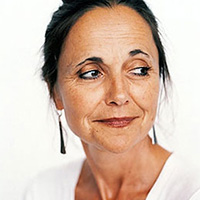 Anita Goldman is a well known Swedish writer of cultural criticism to some of the major Swedish daily newspapers. Her writing focuses on a critical investigation into some of Western cultures basic premises: whether it concerns the use and abuse of Nature (as in the case of the atomic bomb), the ostracism of the female voice in cultural history and the fear of female bodies and desires or the materialistic focus that precludes a spiritual knowledge and awe in relating to the world. Anita Goldman is an ardent vegetable gardener in her house in southern Sweden, where she also leads writing workshops.
Anita Goldman is a well known Swedish writer of cultural criticism to some of the major Swedish daily newspapers. Her writing focuses on a critical investigation into some of Western cultures basic premises: whether it concerns the use and abuse of Nature (as in the case of the atomic bomb), the ostracism of the female voice in cultural history and the fear of female bodies and desires or the materialistic focus that precludes a spiritual knowledge and awe in relating to the world. Anita Goldman is an ardent vegetable gardener in her house in southern Sweden, where she also leads writing workshops.
Martin Hedberg [Meteorologist and Change agent – Sweden]
 Meteorologist. Change agent with special interests in scenarios, Complex adaptive systems and storytelling. Board member of Transition Network Sweden (Omställningsnätverket). Keynote speaker Climate change and extreme events. Self employed. Former Schibsted, National TV (SVT) and Swedish Air Force. Publications: The book “Extremt väder“, also in German “Extremes Wetter”.
Meteorologist. Change agent with special interests in scenarios, Complex adaptive systems and storytelling. Board member of Transition Network Sweden (Omställningsnätverket). Keynote speaker Climate change and extreme events. Self employed. Former Schibsted, National TV (SVT) and Swedish Air Force. Publications: The book “Extremt väder“, also in German “Extremes Wetter”.
Martin Hultman [Associate professor in science, technology and environmental studies at the Department of Technology Management and Economics, Chalmers University pf Technology – Sweden]
 Why don’t we act when we have known the existential danger of climate change for over thirty years? Such are the questions Assoc. Prof. Martin Hultman deal with in his research, praxes and every day life. Hultman is widely published in energy and climate issues especially notable are the articles ‘The Making of an Environmental Hero: A History of Ecomodern Masculinity, Fuel Cells and Arnold Schwarzenegger’ and ‘A green fatwā? Climate change as a threat to the masculinity of industrial modernity’ then the books Discourses of Global Climate Change, Ecological Masculinities and Contending with the (m)Anthropocene. As part of his academic work he publish chronicles in a wide range of newspapers, give public lectures on contemporary politics and advice NGO:s as well as governmental agencies. Hultman leads three research groups analyzing ‘gender and energy’, ‘ecopreneurship in circular economies’ and ‘climate change denial’ at Chalmers University of Technology. He is currently writing on a book with the preliminary title Co-Creating Earth Peace. The Paths of Ecopedagogy, Ecological Masculinities and Rights of Nature.
Why don’t we act when we have known the existential danger of climate change for over thirty years? Such are the questions Assoc. Prof. Martin Hultman deal with in his research, praxes and every day life. Hultman is widely published in energy and climate issues especially notable are the articles ‘The Making of an Environmental Hero: A History of Ecomodern Masculinity, Fuel Cells and Arnold Schwarzenegger’ and ‘A green fatwā? Climate change as a threat to the masculinity of industrial modernity’ then the books Discourses of Global Climate Change, Ecological Masculinities and Contending with the (m)Anthropocene. As part of his academic work he publish chronicles in a wide range of newspapers, give public lectures on contemporary politics and advice NGO:s as well as governmental agencies. Hultman leads three research groups analyzing ‘gender and energy’, ‘ecopreneurship in circular economies’ and ‘climate change denial’ at Chalmers University of Technology. He is currently writing on a book with the preliminary title Co-Creating Earth Peace. The Paths of Ecopedagogy, Ecological Masculinities and Rights of Nature.
https://www.chalmers.se/en/Staff/Pages/Martin-Hultman.aspx
Dan Jönsson [Author, Critic, and Essayist – Sweden]
 Dan Jönsson is an author, critic, and essayist. Jönsson’s latest book Paradisgenen. Fyra utopiska horisonter (The Paradise Gene. Four Utopian Horizons), published by 20TAL Bok in 2020, is a stand-alone sequel to the 2014 book Kontinentaldrift – om de nya murarnas Europa efter finanskrisen (Continental Drift – On the New Walls of Europe After the Financial Crisis). In The Paradise Gene Jönsson leaves his idyllic life in Örtofta, south of Sweden, in search of the dying spark of the utopian dream. His travels take him to the exploitative building projects of Dubai, Guangzhou and the remains of communist China, the forgotten utopian societies of Los Angeles, and the remnants of Soviet Russia. In an age of neoliberal global exploitation, is the dream of a socially just and environmentally sustainable civilization still possible?
Dan Jönsson is an author, critic, and essayist. Jönsson’s latest book Paradisgenen. Fyra utopiska horisonter (The Paradise Gene. Four Utopian Horizons), published by 20TAL Bok in 2020, is a stand-alone sequel to the 2014 book Kontinentaldrift – om de nya murarnas Europa efter finanskrisen (Continental Drift – On the New Walls of Europe After the Financial Crisis). In The Paradise Gene Jönsson leaves his idyllic life in Örtofta, south of Sweden, in search of the dying spark of the utopian dream. His travels take him to the exploitative building projects of Dubai, Guangzhou and the remains of communist China, the forgotten utopian societies of Los Angeles, and the remnants of Soviet Russia. In an age of neoliberal global exploitation, is the dream of a socially just and environmentally sustainable civilization still possible?
Helena Fornstedt [PhD candidate, Department of Civil and Industrial Engineering, Uppsala University and CEFO affiliate – Sweden]
 Helena Fornstedt is a PhD candidate at the Department of Civil and Industrial Engineering at Uppsala University and an affiliated member of the Cemus Research Forum, CEFO. She has a background in civil engineering and business economics, and her research focus is mainly on innovation and resistance to innovation. In her research she explores the tendency in contemporary narratives to always frame innovation as part of the solution – never part of the problem. Helena is interested in exploring different ways to make research reach beyond the ivory tower of academia. She has a monthly column in the local newspaper Örnsköldsviks Allahanda where she writes about transition, sustainability, innovation, science and technology. She is also part of the climate comic project (climatecomic.com), aiming to present climate-related research from multiple academic disciplines in a comic book.
Helena Fornstedt is a PhD candidate at the Department of Civil and Industrial Engineering at Uppsala University and an affiliated member of the Cemus Research Forum, CEFO. She has a background in civil engineering and business economics, and her research focus is mainly on innovation and resistance to innovation. In her research she explores the tendency in contemporary narratives to always frame innovation as part of the solution – never part of the problem. Helena is interested in exploring different ways to make research reach beyond the ivory tower of academia. She has a monthly column in the local newspaper Örnsköldsviks Allahanda where she writes about transition, sustainability, innovation, science and technology. She is also part of the climate comic project (climatecomic.com), aiming to present climate-related research from multiple academic disciplines in a comic book.
Rickard Fornstedt [Illustrator, Designer and Graphic Storyteller – Sweden]
 Rickard Fornstedt is a freelance illustrator, designer and graphic storyteller with a university degree in Graphic Storytelling and Sequential Arts from the University of Gävle. He is interested in communicating scientific research through illustrated narratives, and currently, he is involved in several projects in that area. One of them is the Climate Comic Project (climatecomic.com) that aims to present a narrative about climate change and transition away from fossil dependence in a comic book based on scientific research. His work has, among other things, received honorable mentions by the Swedish Comics Association and the Centre for Energy Ethics at the University of St Andrews. On an unrelated note, he is an incurable fantasy geek and likes to revel in “nerd culture”.
Rickard Fornstedt is a freelance illustrator, designer and graphic storyteller with a university degree in Graphic Storytelling and Sequential Arts from the University of Gävle. He is interested in communicating scientific research through illustrated narratives, and currently, he is involved in several projects in that area. One of them is the Climate Comic Project (climatecomic.com) that aims to present a narrative about climate change and transition away from fossil dependence in a comic book based on scientific research. His work has, among other things, received honorable mentions by the Swedish Comics Association and the Centre for Energy Ethics at the University of St Andrews. On an unrelated note, he is an incurable fantasy geek and likes to revel in “nerd culture”.
Mariam Carlsson Kanyama [International environmental law and earth jurisprudence – Sweden]
 Mariam Carlsson Kanyama, with a background in international environmental law and earth jurisprudence (legal aspects of rights of Nature and Earth centered law) decoloniality and intersectional climate justice. She recently participated in the work on the rights of Lake Vättern as one of the members of the lake Vättern case team and legal advisor to the European tribunal in defense of aquatic ecosystems, Global Alliance for the Rights of Nature. www.therightsofnature.org/lake-vattern-case.
Mariam Carlsson Kanyama, with a background in international environmental law and earth jurisprudence (legal aspects of rights of Nature and Earth centered law) decoloniality and intersectional climate justice. She recently participated in the work on the rights of Lake Vättern as one of the members of the lake Vättern case team and legal advisor to the European tribunal in defense of aquatic ecosystems, Global Alliance for the Rights of Nature. www.therightsofnature.org/lake-vattern-case.
Kieli [Musical artist – Sweden & Finland]
 Sylvan and sincere, Kieli’s music is made with love for old and acoustic instruments, and is rooted in the Nordics and Karelian minority culture. Her cinematic and heartfelt indie-folk invites the listener to a soundscape that breaks barriers — between human and animal, nature and culture, past and present — and offers a liberating space that emboldens personal expression and rest, whilst raising societal questions and challenging the status quo.
Sylvan and sincere, Kieli’s music is made with love for old and acoustic instruments, and is rooted in the Nordics and Karelian minority culture. Her cinematic and heartfelt indie-folk invites the listener to a soundscape that breaks barriers — between human and animal, nature and culture, past and present — and offers a liberating space that emboldens personal expression and rest, whilst raising societal questions and challenging the status quo.
Kieli has released music in Swedish, English, Finnish and Karelian, and her songs have reached an international audience. Behind the stage name Kieli is Swedish-Finnish-Karelian singer, multi-instrumentalist and performer Elin Pöllänen. Elin’s songwriting and artistic expression draw much inspiration from Karelian traditions such as lamentation, and embody her background in animal advocacy and public health, as well as her work as a transdisciplinary researcher within the field of human-animal relations, post-anthropocentric governance, equity and sustainability.
Mikael Kurkiala [Author and Researcher, the Swedish Church, Associate Professor of Cultural Anthropology at Uppsala University – Sweden]
 Mikael Kurkiala is associate professor of Cultural anthropology at Uppsala University and researcher at the Church Office. He is the author of, among other titles, In every drum beat the earth’s pulse: the fear of differences of our times (Ordfront 2005) and When the Soul Goes into Exile: Modernity, Technology & the Sacred (Verbum 2019). He has also participated in several anthologies about the place of existential issues in contemporary society.
Mikael Kurkiala is associate professor of Cultural anthropology at Uppsala University and researcher at the Church Office. He is the author of, among other titles, In every drum beat the earth’s pulse: the fear of differences of our times (Ordfront 2005) and When the Soul Goes into Exile: Modernity, Technology & the Sacred (Verbum 2019). He has also participated in several anthologies about the place of existential issues in contemporary society.
Ida Lod [Musician, Performer and Educator – Sweden]
 Ida Lod is a musician, performer and educator who primarily works in interdisciplinary and crossdisciplinary settings. Through song, words, violin, movement and various ways of interaction with her surroundings she explores the connection between inner and outer worlds. Dadaistic Diva, Food of Love, Ofelia Reversed and Owl Woman are examples of some of her own productions where masking and demaskering are continuous explorations. As an educator Ida focuses on inspiring people to find their own creative voice through embodied voice-practices. Ida lives in Stockholm and was educated at the Academy of Music and Drama, University of Gothenburg.
Ida Lod is a musician, performer and educator who primarily works in interdisciplinary and crossdisciplinary settings. Through song, words, violin, movement and various ways of interaction with her surroundings she explores the connection between inner and outer worlds. Dadaistic Diva, Food of Love, Ofelia Reversed and Owl Woman are examples of some of her own productions where masking and demaskering are continuous explorations. As an educator Ida focuses on inspiring people to find their own creative voice through embodied voice-practices. Ida lives in Stockholm and was educated at the Academy of Music and Drama, University of Gothenburg.
Ayşem Mert [Associate professor and director, IMPRESS Program on Environmental Social Science, Stockholm University – Sweden & Turkey]
 Ayşem Mert is associate professor and director of the IMPRESS Program on Environmental Social Science at Stockholm University, and an active member of Shadow Places and Earth System Governance Networks. Currently she is a senior research fellow at the Centre for Global Cooperation Research (GCR), where she investigates how the future world order and particularly environmental governance is being differently imagined after the COVID-19 pandemic. Thematically, she has been working increasingly on climate related political emotions such as urgency, loss, and fear, the fantasies these emotions produce regarding the future of human and more-than-human societies, and the ways in which practices and institutions are affected by them. She regularly collaborates with artists and non-scientific contributors to communal life and public debate in projects pertaining to climate change and environmental politics. Ayşem also has a personal history of environmental activism and progressive politics in Turkey.
Ayşem Mert is associate professor and director of the IMPRESS Program on Environmental Social Science at Stockholm University, and an active member of Shadow Places and Earth System Governance Networks. Currently she is a senior research fellow at the Centre for Global Cooperation Research (GCR), where she investigates how the future world order and particularly environmental governance is being differently imagined after the COVID-19 pandemic. Thematically, she has been working increasingly on climate related political emotions such as urgency, loss, and fear, the fantasies these emotions produce regarding the future of human and more-than-human societies, and the ways in which practices and institutions are affected by them. She regularly collaborates with artists and non-scientific contributors to communal life and public debate in projects pertaining to climate change and environmental politics. Ayşem also has a personal history of environmental activism and progressive politics in Turkey.
Martin Modéus [Bishop of the Diocese of Linköping, Church of Sweden and Theologian – Sweden]
 Martin Modéus (born 1962) is a Swedish theologian and bishop of the Diocese of Linköping in the evangelical Lutheran Church of Sweden.
Martin Modéus (born 1962) is a Swedish theologian and bishop of the Diocese of Linköping in the evangelical Lutheran Church of Sweden.
Since many years, the Diocese has worked very actively for the environment and for sustainability which has resulted in a climate strategy with highly set goals. In the autumn of 2019, the bishops of the Church of Sweden jointly published an open letter, A Bishops’ Letter About the Climate, a piece of writing that highlights the spiritual and existential challenges – and possibilities – inherent in the climate crisis.
Texter och föredrag som biskop Martin Modéus skrivit
Maria Niwa [Singer-songswriter – Sweden]
 Maria Niwa is a multi-instrumentalist and singer-songwriter from Stockholm. Working with live-sampling instruments and using field recordings, her music spotlights both process and presence.
Maria Niwa is a multi-instrumentalist and singer-songwriter from Stockholm. Working with live-sampling instruments and using field recordings, her music spotlights both process and presence.
In the live-sampling performance, the audience is able to trace the growth of the arrangement as it develops, resulting in a mindful listening to all its details. Accidents and errors, inevitable and human, turn into improvisations that become part of the composition.
With this mix of organic and digital, she creates ethereal sonic landscapes as well as activist anthems for change and community, for imagination as well as rooting down into the present.
https://soundcloud.com/marianiwa
Mattias Olsson [Filmmaker and Founder of Campfire Stories – Sweden]
 Filmmaker Mattias Olsson is the founder of Campfire Stories, which is a film platform that aims to inspire change towards a future of ecological balance and human sanity. His background is that of a still photographer, which was his profession during the 13 years he lived in New York. Since he moved back to Sweden in 2007 he’s produced five films for Swedish television (SVT) and 14 films for Campfire Stories. He’s also a podcast producer and a lecturer. And an enthusiastic hobby-farmer, with a particular love for growing tomatoes and chilies.
Filmmaker Mattias Olsson is the founder of Campfire Stories, which is a film platform that aims to inspire change towards a future of ecological balance and human sanity. His background is that of a still photographer, which was his profession during the 13 years he lived in New York. Since he moved back to Sweden in 2007 he’s produced five films for Swedish television (SVT) and 14 films for Campfire Stories. He’s also a podcast producer and a lecturer. And an enthusiastic hobby-farmer, with a particular love for growing tomatoes and chilies.
Sohanur Raman [Youth activist and Chief Executive, Bangladesh Model Youth Parliament – Bangladesh]
 Youth activist Sohanur Raman, Bangladesh, is the Chief Executive of a Youth-led organization titled Bangladesh Model Youth Parliament (Protiki Jubo Sangsad). He is one of the country’s key young climate advocates and he coordinates the largest youth network YouthNet for Climate Justice and founding member of the global youth movement Fridays for Future Bangladesh country chapter. He is also a changemaker of the SRHR for All Project implemented by the Global MenEngage Alliance.
Youth activist Sohanur Raman, Bangladesh, is the Chief Executive of a Youth-led organization titled Bangladesh Model Youth Parliament (Protiki Jubo Sangsad). He is one of the country’s key young climate advocates and he coordinates the largest youth network YouthNet for Climate Justice and founding member of the global youth movement Fridays for Future Bangladesh country chapter. He is also a changemaker of the SRHR for All Project implemented by the Global MenEngage Alliance.
Sohanur see Patriarchal structures and masculinity norms as important root causes to the climate crisis and to how the most poluting countries (rich countries in the global North) exploit the worlds most affected people and areas (MAPAs) such as Bangladesh.
The Bangladesh YouthNet for Climate Justice managed to stop establishment of several coal plants in Bangladesh.
The youth in the most affected areas in the world are not voiceless they are just not heard. Now more and more start to listen to them. We are proud and humble to have Sohanur as a contributor in the workshop Men, Masculinities and Climate Justice. Is changing masculine norms and behaviour an important key to end fossil fueled Patriarchy?
Ingrid M. Rieser [Host Forest of Though Podcast – Sweden & Norway]
 Ingrid M. Rieser works with communication in audio, film and writing, and is the host of the Forest of Thought podcast. In her podcast and work Ingrid is interested in exploring how we can open up the possibilities for different modes of thinking and being in the world – modes that might help us live well together on planet Earth. Her background is in economics, sustainability, education and filmmaking. Her latest hobby obsession is bookbinding.
Ingrid M. Rieser works with communication in audio, film and writing, and is the host of the Forest of Thought podcast. In her podcast and work Ingrid is interested in exploring how we can open up the possibilities for different modes of thinking and being in the world – modes that might help us live well together on planet Earth. Her background is in economics, sustainability, education and filmmaking. Her latest hobby obsession is bookbinding.
Pia Skoglund [Lecturer and Writer Ecophilosophy Karlstad University – Sweden]
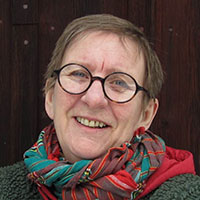 Pia Skoglund has been teaching and writing from an Eco philosophic perspective for many years – mainly at Karlstad University but also in other fora. Her focus seems to circle around humans understood as diverse, manifold beings and the possibility for – and relevance of – meaningful emancipating action in relation to an evolutionary/ complex/active world. In that process, it seems that many of the philosophical questions that we thought already decided, must be re- investigated and concepts we have held for true since long, needs new consideration. And in the present crisis there is no time for quick philosophical or existential answers!
Pia Skoglund has been teaching and writing from an Eco philosophic perspective for many years – mainly at Karlstad University but also in other fora. Her focus seems to circle around humans understood as diverse, manifold beings and the possibility for – and relevance of – meaningful emancipating action in relation to an evolutionary/ complex/active world. In that process, it seems that many of the philosophical questions that we thought already decided, must be re- investigated and concepts we have held for true since long, needs new consideration. And in the present crisis there is no time for quick philosophical or existential answers!
We can and need to talk and think about all this. If possible without being too sure about the quality and shape of our relation to the world. Experience is a great source of information in that process. For me that means forest and fishing, grandchildren and music, philosophy and dance, critical analysis – and synthesis, teaching, gardening, writing and cooking. As Emma Goldman might have said today: If all that´s not possible – it´s not my (r)-evolution!
Isak Stoddard [PhD Researcher, Natural Resources and Sustainable Development, Uppsala University – Sweden]
 Isak Stoddard is a PhD researcher in Natural Resources and Sustainable Development with a particular focus on regional climate and energy transformations. Over the past decade he has worked in various capacities at the student-initiated Centre for Environment and Development Studies (CEMUS) at the University of Uppsala and Swedish University of Agricultural Sciences. At CEMUS, his worked mainly focused on developing transformative and transdisciplinary approaches to higher education as a response to global environmental and societal challenges. Isak was also involved in the creation of a 10-year research-initiative on climate change leadership, centred around a series of visiting professorships at Uppsala University made possible by a donation from Zennström Philanthropies. He has an educational background in engineering physics and energy systems. A dual citizen of Sweden and the United States, he is now based in Uppsala, but enjoys frequent adventures to the Scandinavian mountains for skiing, wandering and climbing.
Isak Stoddard is a PhD researcher in Natural Resources and Sustainable Development with a particular focus on regional climate and energy transformations. Over the past decade he has worked in various capacities at the student-initiated Centre for Environment and Development Studies (CEMUS) at the University of Uppsala and Swedish University of Agricultural Sciences. At CEMUS, his worked mainly focused on developing transformative and transdisciplinary approaches to higher education as a response to global environmental and societal challenges. Isak was also involved in the creation of a 10-year research-initiative on climate change leadership, centred around a series of visiting professorships at Uppsala University made possible by a donation from Zennström Philanthropies. He has an educational background in engineering physics and energy systems. A dual citizen of Sweden and the United States, he is now based in Uppsala, but enjoys frequent adventures to the Scandinavian mountains for skiing, wandering and climbing.
Pella Thiel [Educator and Activist – Sweden]
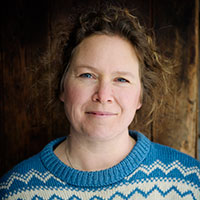 Pella Thiel is a maverick ecologist and activist who works with relational, systemic activism, change processes and leadership för a society in harmony with nature. She is a co-founder of the Swedish Transition Network, End Ecocide Sweden, Save the Rainforest Sweden and the swedish Network for Rights of Nature. She also teaches ecopsychology and is a part of the eco-psychology/art/activist NGO Lodyn. Pella coordinated the first three Rights of Nature Conferences in Sweden, is a part of the UN Harmony with Nature initiative and advisory board of the Global Alliance for the Rights of Nature. Pella has an MSc in Ecology from Stockholm University with the thesis on rainforest restoration in Ecuador. She enjoys pigs, having her hands in the soil at the smallholding in the archipelago of Stockholm where she lives, whiskey and playing with people who truly love what they are doing.
Pella Thiel is a maverick ecologist and activist who works with relational, systemic activism, change processes and leadership för a society in harmony with nature. She is a co-founder of the Swedish Transition Network, End Ecocide Sweden, Save the Rainforest Sweden and the swedish Network for Rights of Nature. She also teaches ecopsychology and is a part of the eco-psychology/art/activist NGO Lodyn. Pella coordinated the first three Rights of Nature Conferences in Sweden, is a part of the UN Harmony with Nature initiative and advisory board of the Global Alliance for the Rights of Nature. Pella has an MSc in Ecology from Stockholm University with the thesis on rainforest restoration in Ecuador. She enjoys pigs, having her hands in the soil at the smallholding in the archipelago of Stockholm where she lives, whiskey and playing with people who truly love what they are doing.
Ceciel Verheij [Anthropologist and Translator – The Netherlands]
 Ceciel Verheij has a background in Social Anthropology and currently work as a translator (fiction/non-fiction).
Ceciel Verheij has a background in Social Anthropology and currently work as a translator (fiction/non-fiction).
Vidar Vetterfalk [Psychologist and Project Manager, Masculinites and the Climate Crisis at MÄN, Men for Gender Equality – Sweden]
 Vidar Vetterfalk is Certified Psychologist, International Project Manager and expert in Masculinites and the Climate Crisis at MÄN, Men for Gender Equality, Sweden He has been active in the feminist organisation MÄN since its inception in 1993, working with engaging boys and men for gender equality and ending men’s violence. For Vidar, as for MÄN, holding men accountable through close cooperation with women’s movements is central to the holistic work with primary violence prevention, the support to women survivors and the work with perpetrators. Vidar grew up on a biodynamic farm and he is passionate about the interlinkages between gender equality, the environment, the climate crisis, and how to engage more men to care together with others.
Vidar Vetterfalk is Certified Psychologist, International Project Manager and expert in Masculinites and the Climate Crisis at MÄN, Men for Gender Equality, Sweden He has been active in the feminist organisation MÄN since its inception in 1993, working with engaging boys and men for gender equality and ending men’s violence. For Vidar, as for MÄN, holding men accountable through close cooperation with women’s movements is central to the holistic work with primary violence prevention, the support to women survivors and the work with perpetrators. Vidar grew up on a biodynamic farm and he is passionate about the interlinkages between gender equality, the environment, the climate crisis, and how to engage more men to care together with others.
Organizational website: www.mfj.se/en and On work with Men, Masculinities and the Climate Crisis: https://mfj.se/en/resources
May-Britt Öhman [Researcher, Centre for Multidisciplinary Studies on Racism, CEMFOR, Uppsala University – Sweden]
 May-Britt Öhman is PhD, researcher and project leader of “Dálkke: Indigenous Climate Change Studies”, at the Centre for Multidisciplinary Studies on Racism, CEMFOR, Uppsala University, guest researcher at History, Luleå University of Technology, and leader of the Sámeednama friddja universitehta– Sámi Land Free University – initiative.
May-Britt Öhman is PhD, researcher and project leader of “Dálkke: Indigenous Climate Change Studies”, at the Centre for Multidisciplinary Studies on Racism, CEMFOR, Uppsala University, guest researcher at History, Luleå University of Technology, and leader of the Sámeednama friddja universitehta– Sámi Land Free University – initiative.
May-Britt Öhman is PhD in History of Technology, 2007, and Lule/Forest Sámi from Lule River/Julevädno, with ancestry also from the Torne river valley on the colonial border between Sweden and Finland.
ClimateExistence 2018
Welcome to Climate Existence 2018 – Pathways in the shadow of climate change
May 7-9 2018 Sigtuna
 We live in a world shadowed by climate change. This crisis is often conveyed using numbers and figures – rather than stories of human experiences. The political changes proposed are often focused on economic or technological solutions – rather than moral or psychological aspects. Very little is said about the need to question our lifestyles, worldviews and relationships with the more-than-human world in our response to climate change.
We live in a world shadowed by climate change. This crisis is often conveyed using numbers and figures – rather than stories of human experiences. The political changes proposed are often focused on economic or technological solutions – rather than moral or psychological aspects. Very little is said about the need to question our lifestyles, worldviews and relationships with the more-than-human world in our response to climate change.
This is the fourth time The Sigtuna Foundation and CEMUS, Centre for Environment and Development Studies, come together to host the Climate Existence conference. With your help, and together with artists, scholars and actors from a variety of fields, we hope to inspire a transdisciplinary and reflective conversation that challenges how we talk, think and act as human beings in an era of climate change and ecological unravelling.
In 2018 we gather to unsettle some of the frames, structures assumptions that shape our understanding of the world. Not necessarily to escape existing ones, but rather to explore the cracks were there is potential for alternative patterns to emerge. We hope to collectively draw maps that inspire clarity, wisdom and imagination for humanity to be able to choose more humble and safe trajectories than we are currently on. This year we focus on the interface between the worlds of academia, art and politics, inviting a wide range of contributions that relate to the predicament we find ourselves in.
Warmly welcome to ClimateExistence 2018!
Program 2018
Download the conference folder here: ClimateExistence Program Folder 2018
Download the updated conference program: ClimateExistence Program 2018
Guests & Contributors 2018

Guest and contributors will be posted as they are confirmed.
Kevin Anderson [Visiting Professor in Climate Change Leadership Uppsala University and Professor of Energy and Climate Change University of Manchester – UK & Sweden]
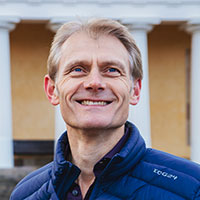 Kevin Anderson is the second visiting professor in climate change leadership at Uppsala University and one of the leading climate scientists in the U.K. He is Professor of Energy and Climate Change at the University of Manchester and Deputy Director at the renowned Tyndall Centre for Climate Change Research. Kevin is a well-known and established researcher within climate change science who engages frequently with policy-makers, the private sector, civil society as well as the media. He has pioneered research on carbon budgets and pathways to acceptable mitigation levels. His work on the technical, social and economic interactions involved in the transformation of energy systems and the mitigation and adaptation to climate change, address questions at the core of the professorship’s theme. Kevin is a prominent thinker, writer and communicator who currently building on and expanding the work of the first visiting professor in climate change leadership, Doreen Stabinsky.
Kevin Anderson is the second visiting professor in climate change leadership at Uppsala University and one of the leading climate scientists in the U.K. He is Professor of Energy and Climate Change at the University of Manchester and Deputy Director at the renowned Tyndall Centre for Climate Change Research. Kevin is a well-known and established researcher within climate change science who engages frequently with policy-makers, the private sector, civil society as well as the media. He has pioneered research on carbon budgets and pathways to acceptable mitigation levels. His work on the technical, social and economic interactions involved in the transformation of energy systems and the mitigation and adaptation to climate change, address questions at the core of the professorship’s theme. Kevin is a prominent thinker, writer and communicator who currently building on and expanding the work of the first visiting professor in climate change leadership, Doreen Stabinsky.
Vanessa Andreotti [Professor Canada Research Chair in Race, Inequalities and Global Change the University of British Columbia – Canada]
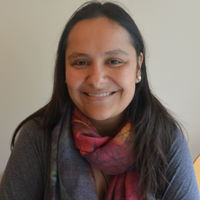 Vanessa Andreotti’s research examines historical and systemic patterns of reproduction of inequalities and how these limit or enable possibilities for collective existence and global change. Her publications in this field include analyses of political economies of knowledge production, discussions of the ethics of international development, and critical comparisons of ideals of globalism and internationalization in education and in global activism, with an emphasis on representations of and relationships with marginalized communities. Her work in teacher education conceptualizes education as an expansion of frames of reference and of fields of signification with a view to expanding possibilities for ethical solidarities. Her academic work is committed to protecting the public role of the university as critic and conscience of society and as a space of independent, multi-voiced, critically informed and socially accountable debates about alternative futures.
Vanessa Andreotti’s research examines historical and systemic patterns of reproduction of inequalities and how these limit or enable possibilities for collective existence and global change. Her publications in this field include analyses of political economies of knowledge production, discussions of the ethics of international development, and critical comparisons of ideals of globalism and internationalization in education and in global activism, with an emphasis on representations of and relationships with marginalized communities. Her work in teacher education conceptualizes education as an expansion of frames of reference and of fields of signification with a view to expanding possibilities for ethical solidarities. Her academic work is committed to protecting the public role of the university as critic and conscience of society and as a space of independent, multi-voiced, critically informed and socially accountable debates about alternative futures.
Jan van Boeckel [Artist-educator, Researcher and Film-maker – The Netherlands & Estonia]
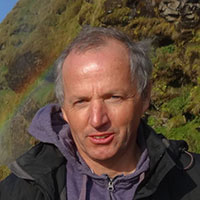 Jan van Boeckel is a passionate artist-educator, engaged researcher and film-maker. Currently, he is professor in art pedagogy at the Estonian Academy of Arts in Tallinn. Previously, Jan was program director in design theory at the Iceland Academy of the Arts in Reykjavik. Together with others, Jan established the international research group on arts-based environmental education at Aalto University, School of Arts, Design and Architecture in Helsinki. In 2013, he presented his doctoral thesis: At the Heart of Art and Earth. Educated as an anthropologist, one of Jan’s areas of interest and concern are the world-views and environmental philosophies of indigenous peoples. Together with film-making group ReRun Productions, he produced a series of documentaries on this theme, as well as films on philosophers such as Jacques Ellul and Arne Naess, who provide a critical analysis of the Western way of life. These films include, among others: The Earth is Crying (1987), It’s Killing the Clouds (1992), The Betrayal by Technology (1992), and The Call of the Mountain (1997).
Jan van Boeckel is a passionate artist-educator, engaged researcher and film-maker. Currently, he is professor in art pedagogy at the Estonian Academy of Arts in Tallinn. Previously, Jan was program director in design theory at the Iceland Academy of the Arts in Reykjavik. Together with others, Jan established the international research group on arts-based environmental education at Aalto University, School of Arts, Design and Architecture in Helsinki. In 2013, he presented his doctoral thesis: At the Heart of Art and Earth. Educated as an anthropologist, one of Jan’s areas of interest and concern are the world-views and environmental philosophies of indigenous peoples. Together with film-making group ReRun Productions, he produced a series of documentaries on this theme, as well as films on philosophers such as Jacques Ellul and Arne Naess, who provide a critical analysis of the Western way of life. These films include, among others: The Earth is Crying (1987), It’s Killing the Clouds (1992), The Betrayal by Technology (1992), and The Call of the Mountain (1997).
http://janvanboeckel.wordpress.com and www.naturearteducation.org
Jonna Bornemark [Associate Professor and Senior Lecturer Philosophy Södertörn University – Sweden]
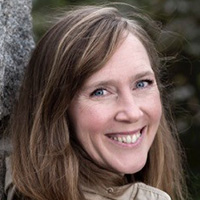 Jonna Bornemark, lecturer in philosophy at Södertörn University, has researched the boundaries of knowledge and science. In 2018 she publised the book Pedanternas Världsherravälde, A philosophical renaissance critique of the measurability society (Volante). In the magazine 10TAL’s issue – Enchantment No. 26, on Disenchantment and Enchantment published in 2017, she wrote the thematic essay “Återupprättelse för det Levande” that deals with the disenchanted world we live in, a world that has much learn from the enchanted.
Jonna Bornemark, lecturer in philosophy at Södertörn University, has researched the boundaries of knowledge and science. In 2018 she publised the book Pedanternas Världsherravälde, A philosophical renaissance critique of the measurability society (Volante). In the magazine 10TAL’s issue – Enchantment No. 26, on Disenchantment and Enchantment published in 2017, she wrote the thematic essay “Återupprättelse för det Levande” that deals with the disenchanted world we live in, a world that has much learn from the enchanted.
Níels Einarsson [Director Stefansson Arctic Institute in Akureyri – Iceland]
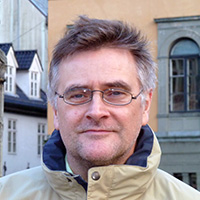 Níels Einarsson is an anthropologist and Director of the Stefansson Arctic Institute in Akureyri, Iceland. His main professional interests include the social, cultural and environmental dimensions of marine resource governance; climate change, whale watching and whaling in Iceland, and North Atlantic Arctic sustainability and social change issues. He has led and participated in numerous international research and scientific assessment projects with a focus on the circumpolar region, including co-editing the first Arctic Human Development Report, and as Co-PI on the current ARCPATH and GREENICE projects, with the primary goal of investigating environmental and social change in Arctic coastal communities.
Níels Einarsson is an anthropologist and Director of the Stefansson Arctic Institute in Akureyri, Iceland. His main professional interests include the social, cultural and environmental dimensions of marine resource governance; climate change, whale watching and whaling in Iceland, and North Atlantic Arctic sustainability and social change issues. He has led and participated in numerous international research and scientific assessment projects with a focus on the circumpolar region, including co-editing the first Arctic Human Development Report, and as Co-PI on the current ARCPATH and GREENICE projects, with the primary goal of investigating environmental and social change in Arctic coastal communities.
Lovísa Eiríksdóttir [PhD Researcher Department of Business Studies Uppsala University – Sweden & Iceland]
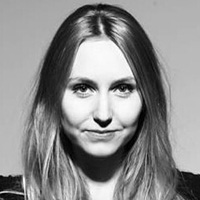 Lovísa’s research is about sustainability and ethics in management and economic education. Her main interest is to explore how philosophy can help bridge the gap between sustainability and economics/business and how social science could benefit from looking at sustainability as method of thinking and deciding – sustainability as ‘a frame of mind’. The main objective is to understand how management and economic researchers/teachers view the combination of sustainability and economics/business by making an analysis of ESD (Education for Sustainable Development) ideas combined with philosophical ideas about judgement and responsibility on the researchers’/teachers’ perceptions. Lovísa has a bachelor degree in economics and a master degree in ethics, both from the University of Iceland. In addition, she has a master degree in Sustainable Management from Uppsala University. She has been teaching business ethics in the University of Iceland, worked in the energy industry and as a journalist in Iceland. Before she started her PhD at Uppsala University she worked as a research assistant at SWEDESD, International Center of Education for Sustainable Development.
Lovísa’s research is about sustainability and ethics in management and economic education. Her main interest is to explore how philosophy can help bridge the gap between sustainability and economics/business and how social science could benefit from looking at sustainability as method of thinking and deciding – sustainability as ‘a frame of mind’. The main objective is to understand how management and economic researchers/teachers view the combination of sustainability and economics/business by making an analysis of ESD (Education for Sustainable Development) ideas combined with philosophical ideas about judgement and responsibility on the researchers’/teachers’ perceptions. Lovísa has a bachelor degree in economics and a master degree in ethics, both from the University of Iceland. In addition, she has a master degree in Sustainable Management from Uppsala University. She has been teaching business ethics in the University of Iceland, worked in the energy industry and as a journalist in Iceland. Before she started her PhD at Uppsala University she worked as a research assistant at SWEDESD, International Center of Education for Sustainable Development.
Anja Fjellgren Walkeapää [Student and Youth council president Sametinget – Sweden]
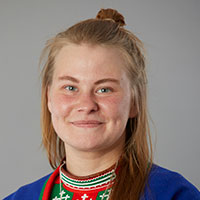 The Sami people are very concerned about the climate change, especially the young generation. We do not know how it will affect our land, water or animals. How the environment we live in will change and be affected.
The Sami people are very concerned about the climate change, especially the young generation. We do not know how it will affect our land, water or animals. How the environment we live in will change and be affected.
I am 25 years old, and living in Umeå at the moment. My domicile of origin is in the West of Härjedalen in a reindeer herding family. I am studying for a Masters in Forestry at the Swedish University of Agricultural Sciences SLU in Umeå. I am on the board of Sametinget (Same parliament) youth council as president. I am also a member of WSY – WWF Sweden Youth.
Garland [Musician and Artist – Sweden]
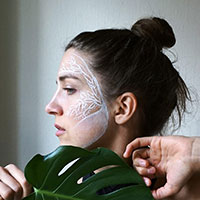 In my music project Garland, I work with mixing organic sounds and digital tools, mainly by live-sampling the viola, percussion and voice. A key factor in the live-sampling performance is the possibility for the audience to trace the growth of the arrangement as it develops, resulting in a mindful listening, hearing the details in the full arrangement. Also, the inevitable possibility of accidents and errors mean that such improvisations become part of the composition. Lyrically, while the project often touches on personal topics of relationships, it also reflects my concerns as a human being in a world where image is becoming more important than identity, and where the same old stories abound, while stories about our interdependence and common fate are more or less neglected.
In my music project Garland, I work with mixing organic sounds and digital tools, mainly by live-sampling the viola, percussion and voice. A key factor in the live-sampling performance is the possibility for the audience to trace the growth of the arrangement as it develops, resulting in a mindful listening, hearing the details in the full arrangement. Also, the inevitable possibility of accidents and errors mean that such improvisations become part of the composition. Lyrically, while the project often touches on personal topics of relationships, it also reflects my concerns as a human being in a world where image is becoming more important than identity, and where the same old stories abound, while stories about our interdependence and common fate are more or less neglected.
https://soundcloud.com/garlandgarland
Diego Galafassi [Writer, Producer and Director Fasad Film – Sweden]
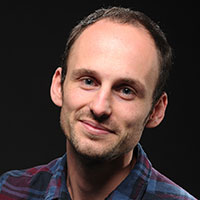 Diego Galafassi (Ph.D.) is a writer, producer and director of documentaries, experimental cinema and performances at Fasad Film, an arthouse in Stockholm concerned with telling stories artistically for social change. Diego’s research at Stockholm Resilience Centre focuses on the role of knowledge and artistic practices in transformations towards sustainability.
Diego Galafassi (Ph.D.) is a writer, producer and director of documentaries, experimental cinema and performances at Fasad Film, an arthouse in Stockholm concerned with telling stories artistically for social change. Diego’s research at Stockholm Resilience Centre focuses on the role of knowledge and artistic practices in transformations towards sustainability.
Karim-Yassin Goessinger [Founder CILAS – Egypt]
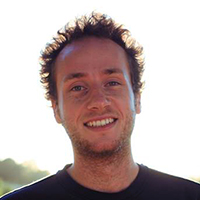 Karim-Yassin Goessinger is founder of the self-sufficient scholarly cooperative Cairo Institute of Liberal Arts and Sciences CILAS. He studied political philosophy and urbanism in the Netherlands, Brazil and France. Prior to setting up CILAS, he worked with different development agencies in Latin America and the Middle East in fields including micro-finance, informal housing and local governance. At CILAS, he has coordinated the fields of study Social Sciences and Humanities, and has directed the yearlong study programme in the liberal arts between 2013 and 2016. In addition, he has convened courses on the sociology of space and gender at the American University in Cairo. He recently published an edited volume on the emergence of Pigeon Towers – a metaphor used to describe CILAS-like learning environments. A Dalai Lama and Donella Meadows Fellow, he enjoys martial arts, world music and tea.
Karim-Yassin Goessinger is founder of the self-sufficient scholarly cooperative Cairo Institute of Liberal Arts and Sciences CILAS. He studied political philosophy and urbanism in the Netherlands, Brazil and France. Prior to setting up CILAS, he worked with different development agencies in Latin America and the Middle East in fields including micro-finance, informal housing and local governance. At CILAS, he has coordinated the fields of study Social Sciences and Humanities, and has directed the yearlong study programme in the liberal arts between 2013 and 2016. In addition, he has convened courses on the sociology of space and gender at the American University in Cairo. He recently published an edited volume on the emergence of Pigeon Towers – a metaphor used to describe CILAS-like learning environments. A Dalai Lama and Donella Meadows Fellow, he enjoys martial arts, world music and tea.
Anita Goldman [Journalist and Author – Sweden]
 Anita Goldman is a journalist and author and a long-standing deputy of Israeli social life and Israeli culture, and the woman’s position in a man-dominated society. For many years, with passion and dedication she has participated in the social and cultural debate as a writer and debater. She examines the authenticity and examines the established truths – and she does not shy away from asking the difficult questions. Nor is she contemptuous or complex, whether it concerns the most enveloped “truths” of women’s movement, our ambiguous relationship with Holocaust, immigration and racism, climate issues or the question of who has “right” in today’s most rewritten political conflict, the between Israelis and Palestinians.
Anita Goldman is a journalist and author and a long-standing deputy of Israeli social life and Israeli culture, and the woman’s position in a man-dominated society. For many years, with passion and dedication she has participated in the social and cultural debate as a writer and debater. She examines the authenticity and examines the established truths – and she does not shy away from asking the difficult questions. Nor is she contemptuous or complex, whether it concerns the most enveloped “truths” of women’s movement, our ambiguous relationship with Holocaust, immigration and racism, climate issues or the question of who has “right” in today’s most rewritten political conflict, the between Israelis and Palestinians.
Jonas Gren [Poet, Journalist, Scholar and Editor 10-TAL – Sweden]
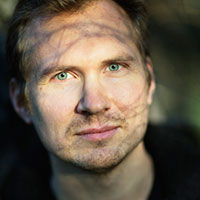 Jonas Gren lives in Stockholm. Author of three books of poetry in Swedish (partly translated to English): Antropocen/ Anthropocene (in press, 2016), Överallt ska jag vara i centrum/ Everywhere I shall be in the centre, (2015), and Lantmäteriet/Land Survey (2014). Jonas is a journalist at Klimatmagasinet Efekt, a Swedish magazine on climate change and society, and a Master student at Stockholm Resilience Center, focusing on narratives in the Anthropocene.
Jonas Gren lives in Stockholm. Author of three books of poetry in Swedish (partly translated to English): Antropocen/ Anthropocene (in press, 2016), Överallt ska jag vara i centrum/ Everywhere I shall be in the centre, (2015), and Lantmäteriet/Land Survey (2014). Jonas is a journalist at Klimatmagasinet Efekt, a Swedish magazine on climate change and society, and a Master student at Stockholm Resilience Center, focusing on narratives in the Anthropocene.
Jamila Haider [Post-Doctoral Researcher Stockholm Resilience Center – Sweden]
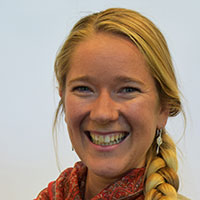 Jamila Haider is a post-doctoral researcher studying resilience and development at the Stockholm Resilience Centre. Her research looks specifically at development as a process of coevolution where ecosystems and people are deeply intertwined. Jamila is co-author of the 2016 World’s best cookbook “With Our Own Hands: A celebration of food and life in the Pamir Mountains of Afghanistan and Tajikistan.” Participatory processes, particularly around food are a key approach to her work, to break down traditional power structures and transcend barriers between science, art and development practice. She worked as a development practitioner from 2009-2011 in Central Asia and Afghanistan.
Jamila Haider is a post-doctoral researcher studying resilience and development at the Stockholm Resilience Centre. Her research looks specifically at development as a process of coevolution where ecosystems and people are deeply intertwined. Jamila is co-author of the 2016 World’s best cookbook “With Our Own Hands: A celebration of food and life in the Pamir Mountains of Afghanistan and Tajikistan.” Participatory processes, particularly around food are a key approach to her work, to break down traditional power structures and transcend barriers between science, art and development practice. She worked as a development practitioner from 2009-2011 in Central Asia and Afghanistan.
Henrik Hallgren [Activist, storyteller and Educator – Sweden]
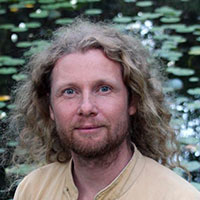 Henrik Hallgren is an eco-activist, storyteller and educator in ecopsychology. As such, he roams in the borderlands between politics, spirituality, ecology, poetry, and philosophy. In all his work, Henrik proceeds from the starting point and the conviction that climate change and other ecological crises is a symptom of a broader “culture of disconnection” and that we as a society has to involve in a deep cultural therapy to heal the relationship between humans and the rest of nature. Henrik is founder of Lodyn – a non-governmental organization and think tank engaged in ecopsychology, nature awareness and activism. He is author of several books such as “Det gröna skiftet” and “Jordens ande” and has an academic background in archaeology, social anthropology and museology.
Henrik Hallgren is an eco-activist, storyteller and educator in ecopsychology. As such, he roams in the borderlands between politics, spirituality, ecology, poetry, and philosophy. In all his work, Henrik proceeds from the starting point and the conviction that climate change and other ecological crises is a symptom of a broader “culture of disconnection” and that we as a society has to involve in a deep cultural therapy to heal the relationship between humans and the rest of nature. Henrik is founder of Lodyn – a non-governmental organization and think tank engaged in ecopsychology, nature awareness and activism. He is author of several books such as “Det gröna skiftet” and “Jordens ande” and has an academic background in archaeology, social anthropology and museology.
Anna Karin Hammar [Priest and Scholar – Sweden]
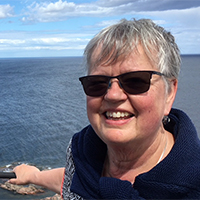 Anna Karin Hammar is a priest in Church of Sweden since ordination in 1975 and wrote her thesis in 2009 on The Mystery of Creation, The Sacrament of Creation, theology of baptism in the encounter of situation and tradition.
Anna Karin Hammar is a priest in Church of Sweden since ordination in 1975 and wrote her thesis in 2009 on The Mystery of Creation, The Sacrament of Creation, theology of baptism in the encounter of situation and tradition.
Hayahm [Musician – Sweden and Australia]
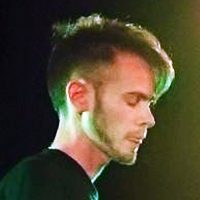 Hayahm was trained as a Rachmaninoff-loving classical pianist, who then started and led a politically-oriented alternative rock band. In his third incarnation, he combines this and more and plays the guitar like a piano. He holds a half-finished music composition degree and a self-published book of poems.
Hayahm was trained as a Rachmaninoff-loving classical pianist, who then started and led a politically-oriented alternative rock band. In his third incarnation, he combines this and more and plays the guitar like a piano. He holds a half-finished music composition degree and a self-published book of poems.
Dougald Hine [Writer, Dark Mountain Project – Sweden & UK]
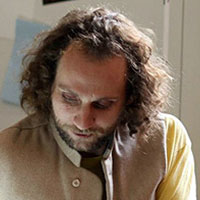 I’m a writer who gets easily distracted. I sometimes start organisations as a way to avoid finishing books. I grew up in Darlington, worked as a radio journalist in Sheffield, got dragged to London by an internet startup and was eventually rescued by a Swedish woman who I met at a festival in the middle of the forest. These days, I spend part of my time working with Riksteatern, the Swedish national theatre, as leader of artistic and audience development. I also help run Dark Mountain, the journal and network that Paul Kingsnorth and I started in 2009.
I’m a writer who gets easily distracted. I sometimes start organisations as a way to avoid finishing books. I grew up in Darlington, worked as a radio journalist in Sheffield, got dragged to London by an internet startup and was eventually rescued by a Swedish woman who I met at a festival in the middle of the forest. These days, I spend part of my time working with Riksteatern, the Swedish national theatre, as leader of artistic and audience development. I also help run Dark Mountain, the journal and network that Paul Kingsnorth and I started in 2009.
Jens Holm [Member of the Swedish Parliament – Sweden]
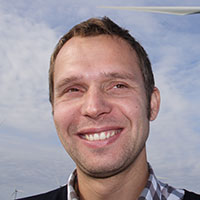 Jens Holm is a member of the Swedish Parliament (Riksdagen) since October 2010, representing the Swedish Left Party. Between 2006-2009 I was a Member of the European Parliament. In the Riksdag he works with issues dealing with climate change, global justice and animal rights.
Jens Holm is a member of the Swedish Parliament (Riksdagen) since October 2010, representing the Swedish Left Party. Between 2006-2009 I was a Member of the European Parliament. In the Riksdag he works with issues dealing with climate change, global justice and animal rights.
Anna-Maria Hällgren [Artistic Researcher – Sweden]
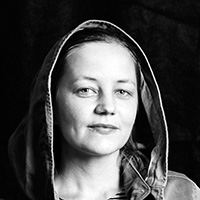 Anna-Maria Hällgren holds a PhD in art history and explores undisciplined ways of thinking and doing, within academia and beyond. She analyzes the connection and overlapping practices between art and scholarship through a wide range of formats and techniques, such as sculpture and collage, drawing and writing. Recently a postdoc researcher at the Department of Culture and Aesthetics, Stockholm university, she is currently taking her academic research about non/anthropocentric notions of being in new directions through practice-led methodologies as an artist in residence at Can Serrat, El Bruc.
Anna-Maria Hällgren holds a PhD in art history and explores undisciplined ways of thinking and doing, within academia and beyond. She analyzes the connection and overlapping practices between art and scholarship through a wide range of formats and techniques, such as sculpture and collage, drawing and writing. Recently a postdoc researcher at the Department of Culture and Aesthetics, Stockholm university, she is currently taking her academic research about non/anthropocentric notions of being in new directions through practice-led methodologies as an artist in residence at Can Serrat, El Bruc.
Sachiko Ishihara [Course Coordinator at CEMUS – Sweden & Japan]
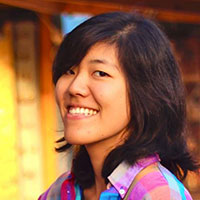 Sachiko Ishihara is a Course Coordinator at CEMUS (Centre for Environment & Development Studies) at Uppsala University and SLU. Working with the undergraduate course ‘Global Challenges & Sustainable Futures’ for the fourth time this year, she is excited to bring some questions from this course to Climate Existence. Extremely intrigued by the art of facilitation, the main questions that drives her now are: How do we imagine and talk about ‘sustainable futures’ that is exciting and visionary, rather than it being about disasters to avoid? Where do you see seeds and spaces of hope?
Sachiko Ishihara is a Course Coordinator at CEMUS (Centre for Environment & Development Studies) at Uppsala University and SLU. Working with the undergraduate course ‘Global Challenges & Sustainable Futures’ for the fourth time this year, she is excited to bring some questions from this course to Climate Existence. Extremely intrigued by the art of facilitation, the main questions that drives her now are: How do we imagine and talk about ‘sustainable futures’ that is exciting and visionary, rather than it being about disasters to avoid? Where do you see seeds and spaces of hope?
Per Johansson [Consultant, Writer, Speaker and Radio Producer – Sweden]
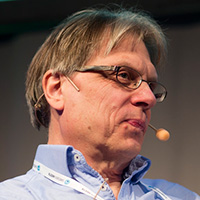 Per started out as an enthusiast for snakes, the more venomous and dangerous the better. He thought he was going to be a zoologist. But life had other plans. Some rather disorienting experiences of a decidedly esoteric kind made it necessary for him to delve into the world of the mind, rather than that of nature. After a while he realised that mind and nature must be the same, in some strange way. What to do? Well, he avoided the university as much as possible, even though he had come some way in the study of the history of science and ideas. For a living, he worked among the sick and deranged for quite a few years. Sometimes he wrote an article for some national newspaper. He was suddenly and unexpectedly called back to the university at the rather mature age of 38, being offered a teaching position in human ecology at Lund University. He then went on to get a PhD in the same subject, eventually finishing a thesis called The Lure of Origins. For a while he was a senior lecturer and researcher in Lund. In 2003 he started, with cognitive scientist and interaction designer Simon Winter, the think tank Infontology, which studies and comments on the ways in which ubiquitous digitalisation affects society and culture. At last, in 2007, he left the university and now navigates the postmodern entrepreneurial mess as a free agent – a consultant, a writer, a speaker, a maker of radio programmes, and an enthusiastic collaborator with various artists. Now and then he also works as an independent expert for the European Commission on matters of culture. His pod radio shows with well known culture journalist Eric Schüldt, Människan och maskinen (for Swedish National Radio), Kunskapens träd and Myter & Mysterier (independent) have acquired something of a cult status in Sweden, among people from all walks of life.
Per started out as an enthusiast for snakes, the more venomous and dangerous the better. He thought he was going to be a zoologist. But life had other plans. Some rather disorienting experiences of a decidedly esoteric kind made it necessary for him to delve into the world of the mind, rather than that of nature. After a while he realised that mind and nature must be the same, in some strange way. What to do? Well, he avoided the university as much as possible, even though he had come some way in the study of the history of science and ideas. For a living, he worked among the sick and deranged for quite a few years. Sometimes he wrote an article for some national newspaper. He was suddenly and unexpectedly called back to the university at the rather mature age of 38, being offered a teaching position in human ecology at Lund University. He then went on to get a PhD in the same subject, eventually finishing a thesis called The Lure of Origins. For a while he was a senior lecturer and researcher in Lund. In 2003 he started, with cognitive scientist and interaction designer Simon Winter, the think tank Infontology, which studies and comments on the ways in which ubiquitous digitalisation affects society and culture. At last, in 2007, he left the university and now navigates the postmodern entrepreneurial mess as a free agent – a consultant, a writer, a speaker, a maker of radio programmes, and an enthusiastic collaborator with various artists. Now and then he also works as an independent expert for the European Commission on matters of culture. His pod radio shows with well known culture journalist Eric Schüldt, Människan och maskinen (for Swedish National Radio), Kunskapens träd and Myter & Mysterier (independent) have acquired something of a cult status in Sweden, among people from all walks of life.
Anna Kaijser [Researcher the Department for Thematic Studies: Environmental Change Linköping University – Sweden]
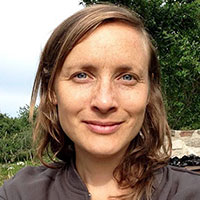 Anna Kaijser work as a researcher at the Department for Thematic Studies: Environmental Change at Linköping University, and as deputy director of The Seed Box Environmental Humanities Collaboratory, a research program funded by Mistra and Formas. In her own work, she uses feminist intersectional and post-colonial theory to study how environmental and climate issues are framed and acted upon in relation to dynamics of power, in politics, policymaking and activism.
Anna Kaijser work as a researcher at the Department for Thematic Studies: Environmental Change at Linköping University, and as deputy director of The Seed Box Environmental Humanities Collaboratory, a research program funded by Mistra and Formas. In her own work, she uses feminist intersectional and post-colonial theory to study how environmental and climate issues are framed and acted upon in relation to dynamics of power, in politics, policymaking and activism.
Mikael Kurkiala [Author and Researcher, the Swedish Church, Associate Professor of Cultural Anthropology at Uppsala University – Sweden]
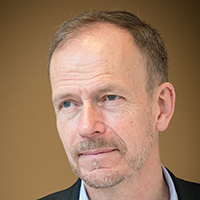 Mikael Kurkiala is an Associate Professor of Cultural Anthropology at Uppsala University and earned his Ph.D. with a thesis on the Oglala Lakota people on the Pine Ridge reservation in South Dakota. He has also been active in the debate on honor related violence. Kurkiala is the author of two books and has participated in several anthologies on existential issues in contemporary society. Today he is a researcher at the Central Church office where he acts, among other things, as the editor for the annually published publication Signs of the Times (Artos).
Mikael Kurkiala is an Associate Professor of Cultural Anthropology at Uppsala University and earned his Ph.D. with a thesis on the Oglala Lakota people on the Pine Ridge reservation in South Dakota. He has also been active in the debate on honor related violence. Kurkiala is the author of two books and has participated in several anthologies on existential issues in contemporary society. Today he is a researcher at the Central Church office where he acts, among other things, as the editor for the annually published publication Signs of the Times (Artos).
Marie Kvarnström [Biologist Swedish Biodiversity Centre, CBM, SLU – Sweden]
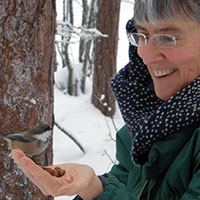 Marie Kvarnström is a Swedish biologist at the Swedish Biodiversity Centre, mother of two sons, and an environmental activist. She has worked for the past 30 years in Sweden and internationally (in Southern Africa, India and Latin America) with caring for ecosystems based on local and traditional knowledge of biological diversity. Current interests are the importance of a close relationship between people and the places where we live with all their living beings, how we can assume responsibility for everything we do, and what constitutes a “Good Life”. She has a life-long love for all more-than-human beings.
Marie Kvarnström is a Swedish biologist at the Swedish Biodiversity Centre, mother of two sons, and an environmental activist. She has worked for the past 30 years in Sweden and internationally (in Southern Africa, India and Latin America) with caring for ecosystems based on local and traditional knowledge of biological diversity. Current interests are the importance of a close relationship between people and the places where we live with all their living beings, how we can assume responsibility for everything we do, and what constitutes a “Good Life”. She has a life-long love for all more-than-human beings.
Marika Lagercrantz [Actress, Director and Chair of KLYS – Sweden]
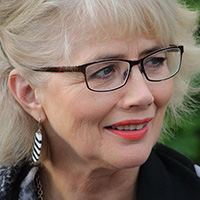 Marika Lagercrantz is a well-known name on the Swedish theater scene, as well as in film and television. Marika joined and started the free theater group Jordcirkus in 1977, with which she played for more than ten years, dramatized and directed sets and touring in Sweden, Europe and the United States. She has worked at the Stockholm City Theater, Riksteatern and Dramaten, and has participated in many 80’s film and television productions, including the Dream of Rita, Lust and Fame, Emma prosecutors and Men who hate women. In 2011-2014, Marika was a cultural council at the Swedish Embassy in Berlin, and since 2015 she is chairman of KLYS (Artistic and Literary Professionals’ Cooperation Committee).
Marika Lagercrantz is a well-known name on the Swedish theater scene, as well as in film and television. Marika joined and started the free theater group Jordcirkus in 1977, with which she played for more than ten years, dramatized and directed sets and touring in Sweden, Europe and the United States. She has worked at the Stockholm City Theater, Riksteatern and Dramaten, and has participated in many 80’s film and television productions, including the Dream of Rita, Lust and Fame, Emma prosecutors and Men who hate women. In 2011-2014, Marika was a cultural council at the Swedish Embassy in Berlin, and since 2015 she is chairman of KLYS (Artistic and Literary Professionals’ Cooperation Committee).
Hans Landeström [Licensed psychologist – Sweden]
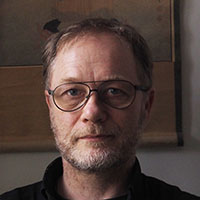 In treating people with stress-related illness, I have seen how spending time in gardens, English landscape parks and the wilderness brings relief and healing to persons suffering from stress, exhaustion, anxiety, depression and trauma. Contact with the outdoors – in body, soul and spirit – regenerates our ability to work, love and feel happiness. As an environmentally active psychologist, I have conducted research on therapeutic experiences of nature, taught ecotherapy, and continue to offer outdoor therapy sessions – all in order to awaken and cultivate our love of nature, because it is much easier to care about what we love.
In treating people with stress-related illness, I have seen how spending time in gardens, English landscape parks and the wilderness brings relief and healing to persons suffering from stress, exhaustion, anxiety, depression and trauma. Contact with the outdoors – in body, soul and spirit – regenerates our ability to work, love and feel happiness. As an environmentally active psychologist, I have conducted research on therapeutic experiences of nature, taught ecotherapy, and continue to offer outdoor therapy sessions – all in order to awaken and cultivate our love of nature, because it is much easier to care about what we love.
Renee Lertzman [Climate, Energy and Environment Consultant, Engagement Strategist and Researcher – US]
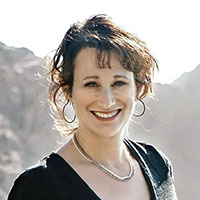 Having pioneered the bridging of psychological research and sustainability for more 20 years, Dr. Renee Lertzman gracefully marries the worlds of academia and practice. She does this by translating complex psychological and social science research insights into clear, applied and profound tools for organizations around the world seeking to engage, mobilize and connect with diverse populations, communities and individuals. Her unique and integrated approach brings together the best of the behavioral sciences, social sciences and innovative design sciences to create a powerful approach to engagement and social change. Renee is an internationally recognized thought leader and adviser, and works with organizations, professionals, and practitioners from government, business, philanthropic, and non-governmental sectors to design research tools, brand strategy, trainings, workshops, engagement practices, and strategies suited for the uniquely challenging nature of environmental work.
Having pioneered the bridging of psychological research and sustainability for more 20 years, Dr. Renee Lertzman gracefully marries the worlds of academia and practice. She does this by translating complex psychological and social science research insights into clear, applied and profound tools for organizations around the world seeking to engage, mobilize and connect with diverse populations, communities and individuals. Her unique and integrated approach brings together the best of the behavioral sciences, social sciences and innovative design sciences to create a powerful approach to engagement and social change. Renee is an internationally recognized thought leader and adviser, and works with organizations, professionals, and practitioners from government, business, philanthropic, and non-governmental sectors to design research tools, brand strategy, trainings, workshops, engagement practices, and strategies suited for the uniquely challenging nature of environmental work.
Hans Liljenström [Professor Biometry, SLU and Director Agora for Biosystems – Sweden]
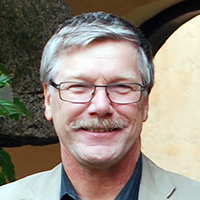 Hans Liljenström is a professor in Biometry, with focus on theoretical biology and biophysics. At SLU he’s primarily teaching systems analysis and mathematics, but he’s also teaching at various CEMUS courses and doctoral courses at Uppsala University. In addition, he’s the director of Agora for Biosystems, an international research center at the Sigtuna Foundation. My work has so far resulted in some 150 publications in various international journals, conference proceedings, and books. He’s research includes mathematical modeling of biological systems and processes at different levels, in particular network dynamics and more specifically mesoscopic neurodynamics. Recent work includes neurocognitive models of decision making, with relevance to societal transition processes. He’s also interested in the human nature and human-nature interaction. Hans Liljenström have throughout the years been involved in interdiscipinary research, primarily between physics, mathematics and biology, but also between natural and social sciences, as well as with various disciplines in the humanities. He has organized a large number of symposia, primarily at the Sigtuna Foundation, on the dialogue between science and the humanities, focusing on world views and philosophy of life.
Hans Liljenström is a professor in Biometry, with focus on theoretical biology and biophysics. At SLU he’s primarily teaching systems analysis and mathematics, but he’s also teaching at various CEMUS courses and doctoral courses at Uppsala University. In addition, he’s the director of Agora for Biosystems, an international research center at the Sigtuna Foundation. My work has so far resulted in some 150 publications in various international journals, conference proceedings, and books. He’s research includes mathematical modeling of biological systems and processes at different levels, in particular network dynamics and more specifically mesoscopic neurodynamics. Recent work includes neurocognitive models of decision making, with relevance to societal transition processes. He’s also interested in the human nature and human-nature interaction. Hans Liljenström have throughout the years been involved in interdiscipinary research, primarily between physics, mathematics and biology, but also between natural and social sciences, as well as with various disciplines in the humanities. He has organized a large number of symposia, primarily at the Sigtuna Foundation, on the dialogue between science and the humanities, focusing on world views and philosophy of life.
Eva Lövbrand [Associate Professor the Department for Thematic Studies: Environmental Change Linköping University – Sweden]
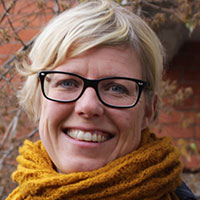 Eva Lövbrand work as an Associate Professor at the Department for Thematic Studies: Environmental Change at Linköping University. Her research revolves around the ideas, knowledge systems and expert practices that inform environmental politics and governance. Climate change has served as her prime empirical example, but in recent years she has also explored how the Anthropocene is construed, narrated and acted upon as a political problem.
Eva Lövbrand work as an Associate Professor at the Department for Thematic Studies: Environmental Change at Linköping University. Her research revolves around the ideas, knowledge systems and expert practices that inform environmental politics and governance. Climate change has served as her prime empirical example, but in recent years she has also explored how the Anthropocene is construed, narrated and acted upon as a political problem.
Alejandro Marcos-Valls [Predoctoral Researcher at Institute for Environmental Science and Technology, Autonomous University of Barcelona (ICTA-UAB) – Spain]
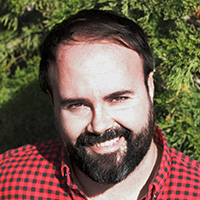 Navigating around topics such as social and ecological metabolism, multi-scale integrated assessment, political ecology and industrial ecology, Alejandro Marcos-Valls is currently researching about how to better use ‘science for governance’ in small (Mediterranean) islands in the context of climate change. In a moment where ‘we’ aim to measure the unmeasurable and citizens/voters claim for guarantees while facing uncertainty and complex issues, his research is trying to create and study integrated scenarios for participation, deliberation, and decision-making based in the MuSIASEM approach (Multi-Scale Integrated Analysis of Societal and Ecosystem Metabolism). He also enjoy working as an educator and which he has done in different capacities in Spain, Sweden, and Ireland, and in several projects related to gender, sustainability, and ICT’s mainly in Spain but also in Mexico and Nicaragua.
Navigating around topics such as social and ecological metabolism, multi-scale integrated assessment, political ecology and industrial ecology, Alejandro Marcos-Valls is currently researching about how to better use ‘science for governance’ in small (Mediterranean) islands in the context of climate change. In a moment where ‘we’ aim to measure the unmeasurable and citizens/voters claim for guarantees while facing uncertainty and complex issues, his research is trying to create and study integrated scenarios for participation, deliberation, and decision-making based in the MuSIASEM approach (Multi-Scale Integrated Analysis of Societal and Ecosystem Metabolism). He also enjoy working as an educator and which he has done in different capacities in Spain, Sweden, and Ireland, and in several projects related to gender, sustainability, and ICT’s mainly in Spain but also in Mexico and Nicaragua.
Viveca Mellegård [Creative Producer Stockholms Resilience Center – Sweden]
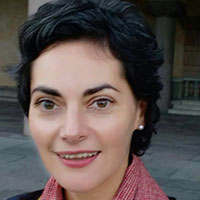 Before coming to the Stockholm Resilience Centre, Viveca Mellegård was a director and producer at the BBC and Discovery Networks, making science, history and arts programmes for over a decade. She moved to Stockholm to study for a MSc in Social Ecological Resilience for Sustainable Development in 2013. At SRC and SwedBio Viveca continues to bring her skills and experiences from film alongside a growing knowledge base and practice within the field of development. She uses film and photography as a way of delving into knowledge and insights that other research methods might not capture and, as tools to engage with and build understanding between researchers and communities. The visuals complement research processes and can unearth new perspectives and questions that are valuable for sustainability science and resilience thinking. The films and photos also aim to communicate complex science and tell stories that engage people’s heads and hearts and help shift mindsets towards a more equitable development of humans and nature.
Before coming to the Stockholm Resilience Centre, Viveca Mellegård was a director and producer at the BBC and Discovery Networks, making science, history and arts programmes for over a decade. She moved to Stockholm to study for a MSc in Social Ecological Resilience for Sustainable Development in 2013. At SRC and SwedBio Viveca continues to bring her skills and experiences from film alongside a growing knowledge base and practice within the field of development. She uses film and photography as a way of delving into knowledge and insights that other research methods might not capture and, as tools to engage with and build understanding between researchers and communities. The visuals complement research processes and can unearth new perspectives and questions that are valuable for sustainability science and resilience thinking. The films and photos also aim to communicate complex science and tell stories that engage people’s heads and hearts and help shift mindsets towards a more equitable development of humans and nature.
Ayşem Mert [Associate Senior Lecturer Stockholm University – Sweden]
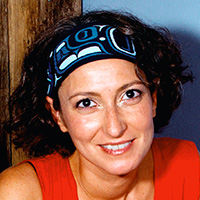 Ayşem Mert is Associate Senior Lecturer at the Department of Political Science, Stockholm University, where she explores the discourses of democracy, development and environment, particularly in transnational governance. Her research interests include climate adaptation, fictive/non-fictive, official/unofficial narratives on nature, eco-criticism, and the Anthropocene. She is the author of Environmental Governance through Partnerships: A discourse theoretical study and co-editor of Public–Private Partnerships for Sustainable Development: Emergence, Influence and Legitimacy as well as articles in Environmental Values, Journal of Environmental Policy and Planning, and Global Policy among others.
Ayşem Mert is Associate Senior Lecturer at the Department of Political Science, Stockholm University, where she explores the discourses of democracy, development and environment, particularly in transnational governance. Her research interests include climate adaptation, fictive/non-fictive, official/unofficial narratives on nature, eco-criticism, and the Anthropocene. She is the author of Environmental Governance through Partnerships: A discourse theoretical study and co-editor of Public–Private Partnerships for Sustainable Development: Emergence, Influence and Legitimacy as well as articles in Environmental Values, Journal of Environmental Policy and Planning, and Global Policy among others.
Astrid Ogilvie [Fellow, Institute of Arctic and Alpine Research (INSTAAR) University of Colorado at Boulder and Senior Scientist, Stefansson Arctic Institute, Akureyri – US & Iceland]
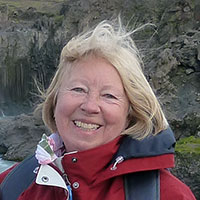 Astrid Ogilvie is a climate historian and human ecologist. Her overarching career goal is to build bridges between the arts, humanities, and the natural sciences, in order to foster interdisciplinary cross-fertilization. Her current research interests focus primarily on climatic and socio-ecological changes in Arctic coastal communities and she co-leads the Nordic Centre of Excellence project Arctic Climate Predictions: Pathways to Resilient, Sustainable Societies (ARCPATH). She also leads The Natural World in Literary and Historical Sources from Iceland ca. AD 800 to 1800 (ICECHANGE). Other projects include The Mývatn District of Iceland: Sustainability, Environment and Change ca. AD 1700 to 1950 (MYSEAC) and The Foundations of Map-Making and Geography in Iceland. She is the author of some 100 scientific papers and two edited books. She is a Senior Scientist at the Stefansson Arctic Institute, a Fellow of INSTAAR at the University of Colorado and Adjunct Professor at Hunter College, the City University of New York and Royal Roads University, Canada.
Astrid Ogilvie is a climate historian and human ecologist. Her overarching career goal is to build bridges between the arts, humanities, and the natural sciences, in order to foster interdisciplinary cross-fertilization. Her current research interests focus primarily on climatic and socio-ecological changes in Arctic coastal communities and she co-leads the Nordic Centre of Excellence project Arctic Climate Predictions: Pathways to Resilient, Sustainable Societies (ARCPATH). She also leads The Natural World in Literary and Historical Sources from Iceland ca. AD 800 to 1800 (ICECHANGE). Other projects include The Mývatn District of Iceland: Sustainability, Environment and Change ca. AD 1700 to 1950 (MYSEAC) and The Foundations of Map-Making and Geography in Iceland. She is the author of some 100 scientific papers and two edited books. She is a Senior Scientist at the Stefansson Arctic Institute, a Fellow of INSTAAR at the University of Colorado and Adjunct Professor at Hunter College, the City University of New York and Royal Roads University, Canada.
http://instaar.colorado.edu/people/directorate.html#a_ogilvie
http://www.svs.is/en/about-us/staff
Jeroen Oomen [Doctoral Candidate and Early Stage Researcher RCC and Deutsches Museum – Germany, US & the Netherlands]
Jeroen Oomen is trained in philosophy, sociology and political science, with a particular interest in questions of equality and justice, environment and climate change. He holds a B.A. (2011) and M.A. (2013) in Philosophy from the University of Amsterdam, the Netherlands, and a M.Sc. (summa cum laude, 2016) in International Relations and Diplomacy at the University of Antwerpen. He joined the RCC and Deutsches Museum in October 2015 as a doctoral candidate and Early Stage Researcher (ESR) of the ENHANCE ITN. Jeroen Oomen divides his time between the Deutsches Museum and the RCC, and was a visiting fellow at Harvard University in the Winter and Spring of 2017. His PhD-research entails a sociohistorical study of the sociotechnical development of climate engineering, focusing on case studies of the SPP-1689 in Germany and the David Keith Group, at Harvard University.
Mark Palermo [Artist, Psychiatrist and Neurologist]
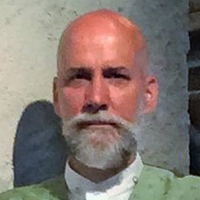 Mark Palermo is an assemblage artist and painter and a psychiatrist and neurologist. In 2013 he conceptualized Agricubismo, an approach which underscores time, slowness, calm and attention to the world. In an ongoing sensory and synesthetic search he “finds” and collects discarded “things” in forests, on trails or in urban settings, assembling them, and trans-forming shapes to metaphorically signify that all can re-live. He is a founding member of the Law, Art and Behavior Foundation and, as a clinical researcher, has spent the past fourteen years fighting medicalization of childhood via martial arts based approaches to commonly diagnosed clinical conditions and critical writings in the field of developmental criminology.
Mark Palermo is an assemblage artist and painter and a psychiatrist and neurologist. In 2013 he conceptualized Agricubismo, an approach which underscores time, slowness, calm and attention to the world. In an ongoing sensory and synesthetic search he “finds” and collects discarded “things” in forests, on trails or in urban settings, assembling them, and trans-forming shapes to metaphorically signify that all can re-live. He is a founding member of the Law, Art and Behavior Foundation and, as a clinical researcher, has spent the past fourteen years fighting medicalization of childhood via martial arts based approaches to commonly diagnosed clinical conditions and critical writings in the field of developmental criminology.
Dan-Erik Sahlberg [Program Director and Musician – Sweden]
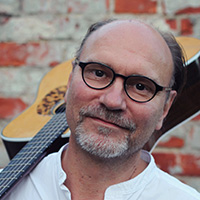 Dan-Erik Sahlberg is program director at Sigtunastiftelsen and a musicians.
Dan-Erik Sahlberg is program director at Sigtunastiftelsen and a musicians.
Caroline Schill [Post-Doctoral Researcher Beijer Institute of Ecological Economics, the Royal Swedish Academy of Sciences – Sweden]
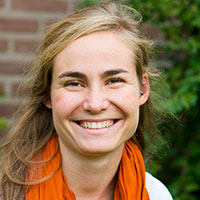 Caroline Schill (PhD in Sustainability Science) is a post-doctoral researcher studying human behaviour and collective action in relation to environmental change at the Beijer Institute of Ecological Economics, the Royal Swedish Academy of Sciences. She is interested in questions such as how we perceive and respond to environmental change and inherent uncertainties, and, in turn, how do these responses shape collective action towards sustainability. In her work, Caroline uses behavioural experiments both in the lab (with students) and the field (non-students), as a means to directly observe and study individual and collective behaviour in the contexts of specific human-environment interactions and scenarios of change.
Caroline Schill (PhD in Sustainability Science) is a post-doctoral researcher studying human behaviour and collective action in relation to environmental change at the Beijer Institute of Ecological Economics, the Royal Swedish Academy of Sciences. She is interested in questions such as how we perceive and respond to environmental change and inherent uncertainties, and, in turn, how do these responses shape collective action towards sustainability. In her work, Caroline uses behavioural experiments both in the lab (with students) and the field (non-students), as a means to directly observe and study individual and collective behaviour in the contexts of specific human-environment interactions and scenarios of change.
Adam Sébire [Filmmaker and Researcher]
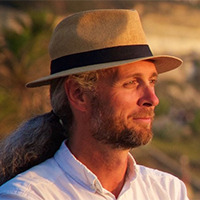 While working as a documentary filmmaker for Australian television on Tuvalu in 2004 Adam Sébire grappled with the problem of presenting ‘visible evidence’ of climate change. Eventually this same problem of visual representation led him to his current practice-based PhD at the University of New South Wales’ Faculty of Art & Design in Australia (though he is based in Europe). His thesis explores the potential of video art to bridge spatio-temporal and sensorial disjunctures between — for example — emissions of invisible gases here & now and their effect elsewhere & ‘elsewhen’. In a parallel project he works with climate scientists’ thermographic cameras which ‘see’ heat in the infra-red spectrum, creating images suggestive of a non-human perspective on anthropogenic warming.
While working as a documentary filmmaker for Australian television on Tuvalu in 2004 Adam Sébire grappled with the problem of presenting ‘visible evidence’ of climate change. Eventually this same problem of visual representation led him to his current practice-based PhD at the University of New South Wales’ Faculty of Art & Design in Australia (though he is based in Europe). His thesis explores the potential of video art to bridge spatio-temporal and sensorial disjunctures between — for example — emissions of invisible gases here & now and their effect elsewhere & ‘elsewhen’. In a parallel project he works with climate scientists’ thermographic cameras which ‘see’ heat in the infra-red spectrum, creating images suggestive of a non-human perspective on anthropogenic warming.
Erika Sigvardsdotter [Human Geographer and Senior Lecturer of Social Sciences the Swedish Red Cross University College – Sweden]
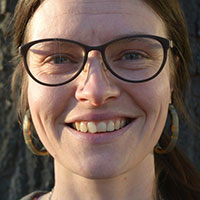 Erika Sigvardsdotter is a human geographer and senior lecturer of social sciences at the Swedish Red Cross University College. Her main research themes concerns issues of migranthood and processes of integration.
Erika Sigvardsdotter is a human geographer and senior lecturer of social sciences at the Swedish Red Cross University College. Her main research themes concerns issues of migranthood and processes of integration.
Pia Skoglund [Lecturer and Writer Ecophilosophy Karlstad University – Sweden]
 Pia Skoglund has been teaching and writing from an Eco philosophic perspective for many years – mainly at Karlstad University but also in other fora. Her focus seems to circle around humans understood as diverse, manifold beings and the possibility for – and relevance of – meaningful emancipating action in relation to an evolutionary/ complex/active world. In that process, it seems that many of the philosophical questions that we thought already decided, must be re- investigated and concepts we have held for true since long, needs new consideration. And in the present crisis there is no time for quick philosophical or existential answers!
Pia Skoglund has been teaching and writing from an Eco philosophic perspective for many years – mainly at Karlstad University but also in other fora. Her focus seems to circle around humans understood as diverse, manifold beings and the possibility for – and relevance of – meaningful emancipating action in relation to an evolutionary/ complex/active world. In that process, it seems that many of the philosophical questions that we thought already decided, must be re- investigated and concepts we have held for true since long, needs new consideration. And in the present crisis there is no time for quick philosophical or existential answers!
We can and need to talk and think about all this. If possible without being too sure about the quality and shape of our relation to the world. Experience is a great source of information in that process. For me that means forest and fishing, grandchildren and music, philosophy and dance, critical analysis – and synthesis, teaching, gardening, writing and cooking. As Emma Goldman might have said today: If all that´s not possible – it´s not my (r)-evolution!
Pella Thiel [Educator and Activist – Sweden]
 Ecologist by training, changemaker and cultural creative by trade, Pella Thiel has a diverse experience as a nature interpreter and environmental activist. She has co-founded End Ecocide Sweden and Transition Network Sweden and writes, speaks and teaches on issues related to transition, ecopsychology and human relationships with nature. Pella is also a member of UN Harmony with Nature Knowledge Initiative and mostly likes practising permaculture on her family farm in Stockholm archipelago.
Ecologist by training, changemaker and cultural creative by trade, Pella Thiel has a diverse experience as a nature interpreter and environmental activist. She has co-founded End Ecocide Sweden and Transition Network Sweden and writes, speaks and teaches on issues related to transition, ecopsychology and human relationships with nature. Pella is also a member of UN Harmony with Nature Knowledge Initiative and mostly likes practising permaculture on her family farm in Stockholm archipelago.
Kjell Vowles [Journalist and Author – Sweden]
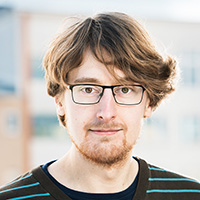 Kjell Vowles is a journalist and a writer, mainly reporting on climate change and sustainability issues. He is part of the editorial board of the quarterly magazine Klimatmagasinet Effekt and has written for several of Sweden’s biggest magazines and newspapers. His first book Stuglandet (together with photographer Moa Karlberg, Votum förlag) was published last year.
Kjell Vowles is a journalist and a writer, mainly reporting on climate change and sustainability issues. He is part of the editorial board of the quarterly magazine Klimatmagasinet Effekt and has written for several of Sweden’s biggest magazines and newspapers. His first book Stuglandet (together with photographer Moa Karlberg, Votum förlag) was published last year.
Call for Contributions 2018
We encourage everyone interested to send in a contribution to the conference. This contribution can be in a variety of formats. Suggestions for art-installations, performances, poetry, workshops or more traditional academic papers are all welcome. If you have ideas you would like to share with us before the contribution deadline, we are very grateful for an e-mail with your thoughts.
At the conference we will focus on several different themes within the concept of ClimateExistence and the review committee will suggest where the accepted contributions might fit in. We aim at combining different kinds of contributions and merging categories. We are especially interested in the spaces, cracks and bridges between different disciplines and expressions to find new pathways in the shadow of Climate Change.
Some questions that we have been asking ourselves and that we invite you to explore are:
How can we (and who are we?) work for change towards a more just and sustainable future in the seemingly endless flood of “bad and/or ‘fake’ news” surrounding us today? What are the constructive potentials, and what are the potential problems, for democracy to handle challenges with a time-frame way beyond the next election?
How are the dominant ways of framing the interconnected challenges blinding us to what lies behind and affecting our individual and collective responses to them?
What perspectives, new or old, could set the stage for a more humble and safe trajectory for our species and the more-than-human-world on planet earth?
Send your contribution to malin.ostman@csduppsala.uu.se no later than February 1st 2018. Your contribution should include name, contact information and a short description of who you are.
In addition to written material, feel free to include music files, videos, pictures or pictures of material if relevant. If you think the contribution file size is too large for e-mail, please let us know how we can access the material in other ways (link to webpage also works). A review committee will look at all the contributions and we will get back to you by mid-February. Please don’t hesitate to contact us should you have any questions.
Some possible angles or themes to approach ClimateExistence might be in the cloud or text below. However, these should not be seen as limitations or boundaries. Merging of categories as well as new themes and vantage points are very much welcome.

Power and agency in transitions//Emancipating pathways to sustainability//Citizenship, populism and pluralism//Coping & for whom//Melancholia and beyond hope//Existence and more than existing//Caring for humans & hospicing modernity//Critical perspectives on education and research//Decolonizing minds, education and practices//Undisciplined disciplines//Measuring the unmeasurable//From hands to head – embodied practices & learning//Climate Change and Time – Rapid Transformation and slow thinking and movement //More-than-human world//Art and meaning making//Fiction and futures – utopias, dystopias //from Retrotopias to biotopias
ClimateExistence 2016
About
We live in a world shadowed by the ongoing climate change crisis. This crisis is often conveyed using numbers and figures – rather than stories of human experiences. The changes proposed are often focused on economic or technological solutions – rather than moral or psychological aspects. Very little is said about the need to question our lifestyles, worldviews and relationships with the more-than-human world, in our response to climate change.
This is the third time The Sigtuna Foundation and CEMUS come together to host the Climate Existence conference. With this undertaking, we wish to create a transdisciplinary conversation that challenges how we talk and think about our role as humans in an era of climate change and ecological unravelling. The conference will also be an exploration of the interface between the worlds of academia and art, inviting a wide range of contributions that open up new ways of relating to the predicament we find ourselves in.
In short: We want to address how the current climate crisis relates to what is at the very core of our existence: to consider Climate Existence.
When: April 6-8, 2016.
Where: The Sigtuna Foundation, Sigtuna.
How: Register by March 23 at http://www.climateexistence.se/registration/
Program
Final program for the ClimateExistence Conference April 6-8, 2016:
Videos, media coverage, presentations and other documentation from Climate Existence 2016
More pictures, short films and other documentation can also be found on the Live-updates conference page.
Keynote Address: ArtCOP21 – a global cultural movement on climate change, April 6
David Buckland, International Director, Cape Farewell.
Recording by Tamarack Media Cooperative, http://tamarackmedia.com
Extreme Dialogue on Climate Existence, April 6
Eva Bakkeslett, artist, filmmaker and activist; Hans Liljenström, Professor of Biometrics at the Swedish University of Agricultural Sciences, Director of Agora for Biosystems; Andrea Nightingale, Professor and Chair of Rural Development in the Global South at the Swedish University of Agricultural Sciences; conversation hosted by Jakob Grandin, CEMUS.
Recording by Tamarack Media Cooperative, http://tamarackmedia.com
Armchair conversation, April 7
David Abram, cultural ecologist, philosopher and writer; Dr. Antje Jackelén, Archbishop, Church of Sweden; Dougald Hine, Riksteatern and the Dark Mountain Project.
Panel conversation: Looking back and moving forward – climate, existence and the power of engagement, April 8
Isabella Lövin, Swedish Minister for International Development Cooperation, journalist and writer; Lisa Färnström, theatre director currently working with the Swedish National Touring Theatre; Bengt Gustafsson, Professor in Astrophysics Uppsala University; Conversation host: Malin Östman, CEMUS.
Presentations
Keynote Address #2: Being able to see that things are hopeless and yet be determined to make them otherwise: Artistic engagement in an age of Climate fear
Jan van Boeckel, artist-educator, researcher and filmmaker
De leder konstens gröna våg, SVT Nyheter Kultur
Kreativ Klimatfriktion, UNT Debatt
Tar större grepp om klimatfrågan, Sigtunabygden
Isbjörnar och pingviner inför klimatkonferens i Sigtuna, Sveriges Radio, P4 Uppland
Ärkebiskopen och biståndsministern till Climate Existence 2016 i Sigtuna
Ärkebiskopen och biståndsministern lyfter klimatfrågan på internationell konferens i Sigtuna
En reflektion över Climate Existence, Pella Thiel, Transition Sweden
Tack, Climate Existence Conference och alla drömmare, Alex&Therese
Guests and Contributors
A selection of guest and contributors to ClimateExistence 2016. For information about all contributors, see the final program.
David Abram [Cultural Ecologist, Philosopher and Performance Artist/US]
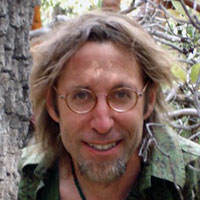 David Abram – cultural ecologist, philosopher, and performance artist – is the founder and creative director of the Alliance for Wild Ethics. He is the author of The Spell of the Sensuous: Perception and Language in a More-than-Human World (Pantheon/Vintage), for which he received the international Lannan Literary Award for Nonfiction. An accomplished storyteller and sleight-of-hand magician who has lived and traded magic with indigenous sorcerers in Indonesia, Nepal, and the Americas, David lectures and teaches widely on several continents. His essays on the cultural causes and consequences of ecological disarray have appeared often in such journals as Orion, Parabola, Environmental Ethics, Tikkun, Wild Earth, Resurgence, and The Ecologist, as well as in numerous edited anthologies. David’s work engages the ecological depths of the imagination, exploring the ways in which sensory perception, poetics, and wonder inform our relation with the animate earth. Named by the Utne Reader as one of a hundred visionaries currently transforming the world, he has been recipient of numerous honors and fellowships. David’s is also profiled in the recent book Visionaries: the 20th Century’s 100 Most Inspirational Leaders (Chelsea Green Press, 2007).
David Abram – cultural ecologist, philosopher, and performance artist – is the founder and creative director of the Alliance for Wild Ethics. He is the author of The Spell of the Sensuous: Perception and Language in a More-than-Human World (Pantheon/Vintage), for which he received the international Lannan Literary Award for Nonfiction. An accomplished storyteller and sleight-of-hand magician who has lived and traded magic with indigenous sorcerers in Indonesia, Nepal, and the Americas, David lectures and teaches widely on several continents. His essays on the cultural causes and consequences of ecological disarray have appeared often in such journals as Orion, Parabola, Environmental Ethics, Tikkun, Wild Earth, Resurgence, and The Ecologist, as well as in numerous edited anthologies. David’s work engages the ecological depths of the imagination, exploring the ways in which sensory perception, poetics, and wonder inform our relation with the animate earth. Named by the Utne Reader as one of a hundred visionaries currently transforming the world, he has been recipient of numerous honors and fellowships. David’s is also profiled in the recent book Visionaries: the 20th Century’s 100 Most Inspirational Leaders (Chelsea Green Press, 2007).
www.wildethics.org/david_abram
Eva Bakkeslett [Artist, Film-maker and Activist/NORWAY]
 Eva Bakkeslett is an artist, filmmaker and gentle activist, exploring the potential for social change through gentle actions and subtle mind-shifts. Her socially engaged practice often combines film, participatory events and workshops; She frequently collaborates with other artist, activists, scientist and engaged people in her work. Eva creates spaces and experiences that challenge our thinking and unravel new narratives that inspire and engage us to make sense of and embody sustainable and thriving ways. By revealing and reclaiming forgotten or rejected practices, concepts and cultures her work directs our attention to the patterns that connect us to the earth as a living organism.
Eva Bakkeslett is an artist, filmmaker and gentle activist, exploring the potential for social change through gentle actions and subtle mind-shifts. Her socially engaged practice often combines film, participatory events and workshops; She frequently collaborates with other artist, activists, scientist and engaged people in her work. Eva creates spaces and experiences that challenge our thinking and unravel new narratives that inspire and engage us to make sense of and embody sustainable and thriving ways. By revealing and reclaiming forgotten or rejected practices, concepts and cultures her work directs our attention to the patterns that connect us to the earth as a living organism.
Jan van Boeckel [Artist-educator, Researcher and Film-maker/The Netherlands & Estonia]
 Jan van Boeckel is a passionate artist-educator, engaged researcher and film-maker. Currently, he is professor in art pedagogy at the Estonian Academy of Arts in Tallinn. Previously, Jan was program director in design theory at the Iceland Academy of the Arts in Reykjavik. Together with others, Jan established the international research group on arts-based environmental education at Aalto University, School of Arts, Design and Architecture in Helsinki. In 2013, he presented his doctoral thesis: At the Heart of Art and Earth. Educated as an anthropologist, one of Jan’s areas of interest and concern are the world-views and environmental philosophies of indigenous peoples. Together with film-making group ReRun Productions, he produced a series of documentaries on this theme, as well as films on philosophers such as Jacques Ellul and Arne Naess, who provide a critical analysis of the Western way of life. These films include, among others: The Earth is Crying (1987), It’s Killing the Clouds (1992), The Betrayal by Technology (1992), and The Call of the Mountain (1997). Jan van Boeckel has lived for some years in Hällefors, Sweden, where he was an art teacher to both children and adults, and consultant on international cultural projects. Between 2004 and 2006, he worked as head of communications at the Netherlands Centre for Indigenous Peoples in Amsterdam. Inspired by indigenous peoples’ cultures, his own engagement in art and art teaching, and the experience of living very near wilderness in Sweden, Jan’s interest has crystallized into developing artistic approaches to connect with “the more-than-human-world.” He initiates activities that facilitate participants to connect and learn with nature through open-ended artistic process. One of his research interests is the tension between trying to open the senses whilst coping with the enormity of the current ecological crisis – an issue all the more pressing when engaging in arts-based environmental education activities with children. Jan van Boeckel works with organizations such as the Foundation for Deep Ecology, the International Forum on Globalization and the Eco-Art Network. He has taught at Schumacher College in the UK and at Spring College in the Netherlands.
Jan van Boeckel is a passionate artist-educator, engaged researcher and film-maker. Currently, he is professor in art pedagogy at the Estonian Academy of Arts in Tallinn. Previously, Jan was program director in design theory at the Iceland Academy of the Arts in Reykjavik. Together with others, Jan established the international research group on arts-based environmental education at Aalto University, School of Arts, Design and Architecture in Helsinki. In 2013, he presented his doctoral thesis: At the Heart of Art and Earth. Educated as an anthropologist, one of Jan’s areas of interest and concern are the world-views and environmental philosophies of indigenous peoples. Together with film-making group ReRun Productions, he produced a series of documentaries on this theme, as well as films on philosophers such as Jacques Ellul and Arne Naess, who provide a critical analysis of the Western way of life. These films include, among others: The Earth is Crying (1987), It’s Killing the Clouds (1992), The Betrayal by Technology (1992), and The Call of the Mountain (1997). Jan van Boeckel has lived for some years in Hällefors, Sweden, where he was an art teacher to both children and adults, and consultant on international cultural projects. Between 2004 and 2006, he worked as head of communications at the Netherlands Centre for Indigenous Peoples in Amsterdam. Inspired by indigenous peoples’ cultures, his own engagement in art and art teaching, and the experience of living very near wilderness in Sweden, Jan’s interest has crystallized into developing artistic approaches to connect with “the more-than-human-world.” He initiates activities that facilitate participants to connect and learn with nature through open-ended artistic process. One of his research interests is the tension between trying to open the senses whilst coping with the enormity of the current ecological crisis – an issue all the more pressing when engaging in arts-based environmental education activities with children. Jan van Boeckel works with organizations such as the Foundation for Deep Ecology, the International Forum on Globalization and the Eco-Art Network. He has taught at Schumacher College in the UK and at Spring College in the Netherlands.
http://janvanboeckel.wordpress.com and www.naturearteducation.org
David Buckland [Artist, Film-maker, Creator and Director of Cape Farewell/UK]
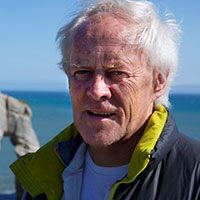 His artwork is included in the permanent collections of the National Portrait Gallery, London, the Centre Georges Pompidou, Paris, the Michael Wilson Collection, London. In 2000, Buckland created and now directs the Cape Farewell international foundation – Climate is Culture. In 2014 he and Cape Farewell initiated with French partners COAL, ArtCOP21, a global festival of cultural activity on climate change – over 400 cultural climate ‘events’ taking place in over 46 countries. Buckland curated ‘eARTh’ for the Royal Academy 2009, U-n-f-o-l-d for Cape Farewell 2010, Carbon 12 for Paris 2012, Carbon 13 for the Ballroom, Marfa Texas 2012, and Carbon 14 for the Royal Ontario Museum 2014. He produced the films ‘Art from the Arctic’ 2006 for the BBC and ‘Burning Ice’ for Sundance, 2010. In Buckland’s art, he works to enable events to be created, performed and then recorded through lens based technology. The recorded information is then transformed and manifested through process to have the physicality and emotional presence of a tactile object.
His artwork is included in the permanent collections of the National Portrait Gallery, London, the Centre Georges Pompidou, Paris, the Michael Wilson Collection, London. In 2000, Buckland created and now directs the Cape Farewell international foundation – Climate is Culture. In 2014 he and Cape Farewell initiated with French partners COAL, ArtCOP21, a global festival of cultural activity on climate change – over 400 cultural climate ‘events’ taking place in over 46 countries. Buckland curated ‘eARTh’ for the Royal Academy 2009, U-n-f-o-l-d for Cape Farewell 2010, Carbon 12 for Paris 2012, Carbon 13 for the Ballroom, Marfa Texas 2012, and Carbon 14 for the Royal Ontario Museum 2014. He produced the films ‘Art from the Arctic’ 2006 for the BBC and ‘Burning Ice’ for Sundance, 2010. In Buckland’s art, he works to enable events to be created, performed and then recorded through lens based technology. The recorded information is then transformed and manifested through process to have the physicality and emotional presence of a tactile object.
www.bucklandart.com, www.capefarewell.com and www.artcop21.com
Peter Hagerrot, Emilia Rekestad, David Bennett and Pella Thiel [Transition Network Sweden]
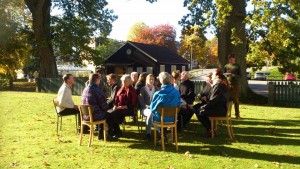
Transition Network Sweden is a part of the international Transition Network. We inspire, encourage, connect, support and train communities as they self-organise around the Transition model, creating initiatives that rebuild resilience and reduce CO2 emissions. Inner transition is an important part of the transition model, as we believe that the challenges we face are not just caused by a mistake in our technologies but as a direct result of our world view and belief system. The impact of information about the state of our planet can generate fear and grief – which may underlie the state of denial that many people are caught in. The work of inner transition addresses these issues to strengten our ability to cope and to act as agents of change. Emilia Rekestad, David Bennett, Peter Hagerrot and Pella Thiel are educators and members of the core group of Transition Network Sweden.
Dougald Hine [Writer, Dark Mountain Project/SWEDEN & UK]
 I’m a writer who gets easily distracted. I sometimes start organisations as a way to avoid finishing books. I grew up in Darlington, worked as a radio journalist in Sheffield, got dragged to London by an internet startup and was eventually rescued by a Swedish woman who I met at a festival in the middle of the forest. These days, I spend part of my time working with Riksteatern, the Swedish national theatre, as leader of artistic and audience development. I also help run Dark Mountain, the journal and network that Paul Kingsnorth and I started in 2009.
I’m a writer who gets easily distracted. I sometimes start organisations as a way to avoid finishing books. I grew up in Darlington, worked as a radio journalist in Sheffield, got dragged to London by an internet startup and was eventually rescued by a Swedish woman who I met at a festival in the middle of the forest. These days, I spend part of my time working with Riksteatern, the Swedish national theatre, as leader of artistic and audience development. I also help run Dark Mountain, the journal and network that Paul Kingsnorth and I started in 2009.
Vincent J. F. Huang [Artist, Art Curator and Scholar/TAIWAN]
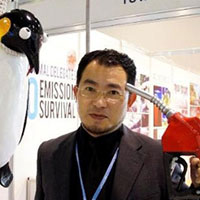 Vincent J.F. Huang received his MFA from Gray’s School of Art in Scotland. Huang has been selected as the artist-in-residence by the AIR Program of Pier—2 Art District at Kaohsiung (Taiwan), Duolun MoMA in Shanghai (China), Artspace in Sydney (Australia).
Vincent J.F. Huang received his MFA from Gray’s School of Art in Scotland. Huang has been selected as the artist-in-residence by the AIR Program of Pier—2 Art District at Kaohsiung (Taiwan), Duolun MoMA in Shanghai (China), Artspace in Sydney (Australia).
Since 2010, Huang began working with Tuvalu, a small South Pacific nation island that is facing the risk of becoming uninhabitable due to sea level rise. He represented Tuvalu as an official delegate to participate in the UNFCCC COP 18 in Doha and COP 19 in Warsaw, respectively. In the following year, Huang represented Tuvalu at the 55th and 56th Venice Biennale and took part in The Arctic Circle led by The Farm Foundation for the Arts & Sciences (FFAS). His international engagement through artistic expression eventually earned him domestic recognition as he received the 7th Presidential Cultural Award in 2013, the most prestigious cultural award in Taiwan.
Huang’s eco – art projects have extended to many parts of the world: UK, USA, Germany, Italy, China, Australia, Middle East, South America, Tuvalu and Taiwan.
Antje Jackelén [Church of Sweden/SWEDEN]

Antje Jackelén is the Archbishop of the Church of Sweden since 2014 and was before that bishop of the diocese of Lund. Dr. Jackelén is also an Adjunct Professor of Systematic Theology/Religion and Science at the Lutheran School of Theology at Chicago, USA, where she taught and was director of the Zygon Center for Religion and Science 2001-2007. From 2008-2014 president of the European Society for the Study of Science and Theology. Her research interests include interdisciplinary work at the intersection of religion and science, the role of religion in society and Trinitarian theology.
Author of Time and Eternity (2005), The Dialogue between Religion and Science (2004), Gud är större (God is greater, 2011) and numerous articles, published in various languages.
Her international engagements include the office of Member of the Council of the Lutheran World Federation.
www.svenskakyrkan.se/omoss/om-arkebiskop-antje-jackelen
Josefin Lindh, Ingrid M. Rieser and Felicia Sjögren [The Bigger Picture Network/SWEDEN]
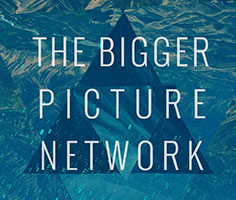 The Bigger Picture Network is a network for artists who want to see their work in “the bigger picture” of the massive challenges facing humanity. The Bigger Picture helps bring together artists, works as a platform for projects and events, and strives to explore sustainability issues in new ways through art. At the conference, members of the network will show their new fictional short film, a story from a future that is heavily impacted by climate change.
The Bigger Picture Network is a network for artists who want to see their work in “the bigger picture” of the massive challenges facing humanity. The Bigger Picture helps bring together artists, works as a platform for projects and events, and strives to explore sustainability issues in new ways through art. At the conference, members of the network will show their new fictional short film, a story from a future that is heavily impacted by climate change.
Isabella Lövin [Minister for International Development Cooperation and Honorary Doctor SLU/SWEDEN]
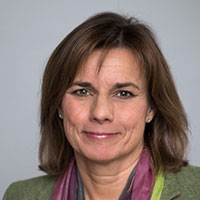 Acclaimed journalist and author until 2009. An elected Member of the European Parliament between 2009 and 2014. A leading member of the Greens in the Fisheries and Development Committees, involved in the reform of the EU Common Fisheries Policy, also special rapporteur on the external dimension of the Common Fisheries Policy and the role of the EU in fighting illegal fisheries globally. Since 2015, co-chair of the International Dialogue on Peacebuilding and Statebuilding.
Acclaimed journalist and author until 2009. An elected Member of the European Parliament between 2009 and 2014. A leading member of the Greens in the Fisheries and Development Committees, involved in the reform of the EU Common Fisheries Policy, also special rapporteur on the external dimension of the Common Fisheries Policy and the role of the EU in fighting illegal fisheries globally. Since 2015, co-chair of the International Dialogue on Peacebuilding and Statebuilding.
Andri Snær Magnason [Writer/ICELAND]
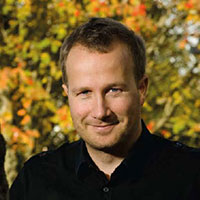 Andri Snær Magnason is an Icelandic writer, born in Reykjavik on the 14th of July 1973. His most recent book Tímakistan won the Icelandic literary Award and is nominated for the Nordic Council Children’s book Award. Andri has written novels, poetry, plays, short stories, essays and CD’s. He is the codirector of the documentary film Dreamland. His work has been published or performed in more than 30 countries. His novel, LoveStar was nominated for the Philip K Dick Award 2013, was chosen “Novel of the year” by Icelandic booksellers and received the DV Literary Award. His children’s book, The Story of the Blue Planet, was the first children’s book to receive the Icelandic Literary Prize and has been published or performed in 26 countries. The Story of the Blue Planet received the Janusz Korczak Honorary Award 2000 the West Nordic Children’s Book Prize 2002 and The Green Earth Honor Award 2013. The play from the story has been performed in theaters in Finland, Swiss, Iceland and Canada. Andri has collaborated with various artists in the fields of activism, architecture and theater – mostly with a band called múm. Andri has been active in the fight against the destruction of the Icelandic Highlands. His book – Dreamland – a Self Help Manual for a Frightened Nation takes on these issues. Dreamland has been published in English, Danish, German, Spanish and Japanese and has become a feature length documentary film. Footage from Dreamland and an interview with Andri can be seen in Charles Ferguson’s Oscar winning documentary – Inside Job. Andri can be contacted here: andrimagnason@gmail.com. Andri Magnason is the winner of the Kairos Award of 2010 – granted by the Alfred Toepfer institute in Hamburg.
Andri Snær Magnason is an Icelandic writer, born in Reykjavik on the 14th of July 1973. His most recent book Tímakistan won the Icelandic literary Award and is nominated for the Nordic Council Children’s book Award. Andri has written novels, poetry, plays, short stories, essays and CD’s. He is the codirector of the documentary film Dreamland. His work has been published or performed in more than 30 countries. His novel, LoveStar was nominated for the Philip K Dick Award 2013, was chosen “Novel of the year” by Icelandic booksellers and received the DV Literary Award. His children’s book, The Story of the Blue Planet, was the first children’s book to receive the Icelandic Literary Prize and has been published or performed in 26 countries. The Story of the Blue Planet received the Janusz Korczak Honorary Award 2000 the West Nordic Children’s Book Prize 2002 and The Green Earth Honor Award 2013. The play from the story has been performed in theaters in Finland, Swiss, Iceland and Canada. Andri has collaborated with various artists in the fields of activism, architecture and theater – mostly with a band called múm. Andri has been active in the fight against the destruction of the Icelandic Highlands. His book – Dreamland – a Self Help Manual for a Frightened Nation takes on these issues. Dreamland has been published in English, Danish, German, Spanish and Japanese and has become a feature length documentary film. Footage from Dreamland and an interview with Andri can be seen in Charles Ferguson’s Oscar winning documentary – Inside Job. Andri can be contacted here: andrimagnason@gmail.com. Andri Magnason is the winner of the Kairos Award of 2010 – granted by the Alfred Toepfer institute in Hamburg.
Andrea Nightingale [SLU/SWEDEN]
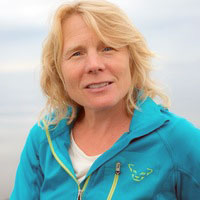 Andrea Nightingale is a Geographer by training and presently Chair of Rural Development in the Global South at the Swedish University of Agricultural Sciences (SLU) in Uppsala, Sweden. Her current research interests include: climate change adaptation and transformation debates; public authority, collective action and state formation; and feminist work on emotion and subjectivity in relation to theories of development, collective action and cooperation. She previously worked at the School of Global Studies, University of Gothenburg, Sweden and the University of Edinburgh, Geography, School of GeoSciences, Scotland.
Andrea Nightingale is a Geographer by training and presently Chair of Rural Development in the Global South at the Swedish University of Agricultural Sciences (SLU) in Uppsala, Sweden. Her current research interests include: climate change adaptation and transformation debates; public authority, collective action and state formation; and feminist work on emotion and subjectivity in relation to theories of development, collective action and cooperation. She previously worked at the School of Global Studies, University of Gothenburg, Sweden and the University of Edinburgh, Geography, School of GeoSciences, Scotland.
Brian Palmer [Uppsala University/SWEDEN & US]
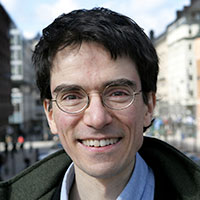 Brian Palmer is a social anthropologist and scholar of religion at Uppsala University in Sweden. Previously he held the Torgny Segerstedt Guest Professorship at Gothenburg University, and before that he taught at Harvard. His courses there on civic courage and engagement attracted as many as 600 students per term, and in 2002 Brian was awarded the Levenson Prize as Harvard’s best lecturer. Brian’s latest book, written together with Ola Larsmo, is 101 historiska hjältar (101 historical heroes). It was published in October, 2013 by Historiska media (Lund); a softcover version is also available, and English and Korean editions are being prepared.
Brian Palmer is a social anthropologist and scholar of religion at Uppsala University in Sweden. Previously he held the Torgny Segerstedt Guest Professorship at Gothenburg University, and before that he taught at Harvard. His courses there on civic courage and engagement attracted as many as 600 students per term, and in 2002 Brian was awarded the Levenson Prize as Harvard’s best lecturer. Brian’s latest book, written together with Ola Larsmo, is 101 historiska hjältar (101 historical heroes). It was published in October, 2013 by Historiska media (Lund); a softcover version is also available, and English and Korean editions are being prepared.
Alex Tael and Therese Lindqvist Persson [The band “Alex och Therese”/SWEDEN]
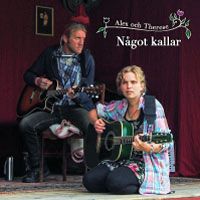 Our music has a spiritual perspective on life and man as a starting point. We look upon man as a spiritual beeing. And we contemplate if not many of today´s problem in the world is due to the modern man´s poor contact with his/-er spirit and spirituality. When it comes to climate change and the climate movement we believe that a global and political shift is of great importance, but also an individual mental/spiritual shift. The one does not exclude the other. Further, we believe that a spiritual perspective on life goes hand in hand with care for the earth and an equitable distribution of the earth´s resources – for spiritual occupation such as creativity, making of music, and contemplation has the capacity to dispose man into gentleness. This is our experience. Our music can be described as straightforward and stripped down; a woman and a man with an acoustic guitar each and singing. Sometimes we play different drums and sing. The lyrics, which are in Swedish, deal with timeless subjects such as love, happiness, grief, and despair, but often they are set in a contemporary context. Since a few years back we live in Skattungbyn, Dalarna. Here we try to live a life in simplicity close to nature and practice our philosophy of life.
Our music has a spiritual perspective on life and man as a starting point. We look upon man as a spiritual beeing. And we contemplate if not many of today´s problem in the world is due to the modern man´s poor contact with his/-er spirit and spirituality. When it comes to climate change and the climate movement we believe that a global and political shift is of great importance, but also an individual mental/spiritual shift. The one does not exclude the other. Further, we believe that a spiritual perspective on life goes hand in hand with care for the earth and an equitable distribution of the earth´s resources – for spiritual occupation such as creativity, making of music, and contemplation has the capacity to dispose man into gentleness. This is our experience. Our music can be described as straightforward and stripped down; a woman and a man with an acoustic guitar each and singing. Sometimes we play different drums and sing. The lyrics, which are in Swedish, deal with timeless subjects such as love, happiness, grief, and despair, but often they are set in a contemporary context. Since a few years back we live in Skattungbyn, Dalarna. Here we try to live a life in simplicity close to nature and practice our philosophy of life.
Doreen Stabinsky [College of the Atlantic and Uppsala University/US]
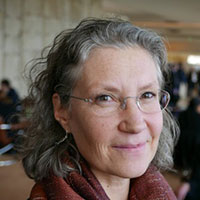 Doreen actively researches and writes about the impacts of climate change on agriculture and food security, and on the emerging issue of loss and damage from slow onset impacts of climate change. She also serves as advisor to a number of governments and international NGOs on issues related to agriculture and loss and damage in ongoing negotiations under the UN Framework Convention on Climate Change. Doreen also closely follows international negotiations on biosafety and is a current member of the Ad Hoc Technical Expert Group on Risk Assessment and Risk Management under the Cartagena Protocol on Biosafety. She has represented various NGOs and the College of the Atlantic in numerous intergovernmental forums, including the UN Convention on Biological Diversity, the UN Framework Convention on Climate Change, the UN Food and Agriculture Organization, the UN Commission on Sustainable Development, and the World Trade Organization. She has also held positions with and advised non-governmental organizations on topics related to genetic engineering and agriculture, including ten years as an agriculture campaigner with Greenpeace. She is co-editor, with Stephen Brush, of the book Valuing local knowledge: indigenous people and intellectual property rights.
Doreen actively researches and writes about the impacts of climate change on agriculture and food security, and on the emerging issue of loss and damage from slow onset impacts of climate change. She also serves as advisor to a number of governments and international NGOs on issues related to agriculture and loss and damage in ongoing negotiations under the UN Framework Convention on Climate Change. Doreen also closely follows international negotiations on biosafety and is a current member of the Ad Hoc Technical Expert Group on Risk Assessment and Risk Management under the Cartagena Protocol on Biosafety. She has represented various NGOs and the College of the Atlantic in numerous intergovernmental forums, including the UN Convention on Biological Diversity, the UN Framework Convention on Climate Change, the UN Food and Agriculture Organization, the UN Commission on Sustainable Development, and the World Trade Organization. She has also held positions with and advised non-governmental organizations on topics related to genetic engineering and agriculture, including ten years as an agriculture campaigner with Greenpeace. She is co-editor, with Stephen Brush, of the book Valuing local knowledge: indigenous people and intellectual property rights.
Call for Contributions
The Climate Existence conference aims to create interesting and meaningful meetings between and within the worlds of academia, civil society and art. We therefore have invited contributions to the conference in a variety of formats, including:
- Art-pieces (installation, performance, audio-visual, short-story, music etc.)
- Academic Papers
- Proposals for workshops and other sessions
The review committee has now made their final selection and have included accepted contribution in the conference program, available here: http://www.climateexistence.se/program/
ClimateExistence 2010
CEMUS and the Sigtuna Foundation welcome you to Climate Existence November 1-3, 2010, in Sigtuna Sweden.
What are the existential aspects of the climate crisis? What do our values and visions have to do with the current crisis? Who are we as humans in this age of environmental crisis and what is our responsibility? Do we need to change the way we perceive nature and our role in society?
Program
Programme ClimateExstence 2010
Programme Folder ClimateExistence 2010
Documentation and media from the conference
Learning horizontally instead of drilling Sara Jeswani, SWEDEN.SE/BLOGS
Existentiella aspekter av klimatfrågan Hannes Kjörnsberg, Fria Tidningen
Hjälp miljörörelsen förnya sig! Sara Jeswani, Effekt klimatmagasinet
Harald Welzer: Vi stjäl från framtiden Sara Jeswani, Effekt klimatmagasinet
About the conference
On November 1-3, 2010, CEMUS, The Centre for Environment and Development Studies and CSD Uppsala, Uppsala Centre for Sustainable Development, along with The Sigtuna Foundation are welcoming you to a conference dealing with the underlying moral, existential and psychological aspects of human and societal responses to climate change. This will be a follow up Conference to a similar successful venture held in Sigtuna in 2008. The conference is going to run for 3 days and during that time we will not only be listening to inspiring keynotes and participating in rewarding workshops but also be listening to poetry, music and enjoying social events.
Background
Today, most of us know that climate change poses a real and serious threat to our societies. Information reaches us in the shape of numbers and facts in new scientific reports and in media coverage of political meetings and international summits. The message: we need to make deliberate changes in the way we live our lives in order to minimize our environmental impact.
But the changes proposed are often focused on the implementation of economic or technologic solutions and a lot of emphasis is being put on the physical and infrastructural aspects of this new challenge humanity faces. Very little is said about a need to challenge our minds, mindsets and lifestyles to respond to climate change or the moral, ethical and psychological aspects of the changes needed.
KlimatExistens 2008
Välkommen till konferensen KlimatExistens 2008!
Under tre dagar i mars kommer vi att tillsammans med intresserade deltagare och spännande föreläsare få möjlighet att diskutera och fördjupa vår förståelse för vår tids viktigaste ödesfråga: klimatfrågan.
Uppmärksamheten kring klimatfrågan har under de senaste åren intensifierats och seglat upp som den kanske viktigaste utmaningen på den globala agendan. I samhällsdebatten betonas ofta hur vi som individer kan påverka utvecklingen i en mer hållbar riktning genom en förändrad konsumtion, exempelvis genom att byta ut våra glödlampor eller genom att köpa en miljöbil. Men är denna typ av åtgärder en långsiktig lösning på klimatproblematiken? Och är klimatfrågan i grunden verkligen en teknisk och ekonomisk fråga?
Sällan analyseras vilka bakomliggande värderingar, drivkrafter och tankesystem som lett fram till och ligger till grund för den ohållbara och historiskt sett helt unika resursförbrukning vi ser idag. Dessa centrala aspekter förtjänar att lyftas fram och tas i beaktande då man söker lösningar på det globala dilemma vi står inför. Kan det vara vårt sätt att tänka och relatera till vår omgivning som utgör det största hindret för att nå ett hållbart samhälle?
KlimatExistens 2008 kulturprogram
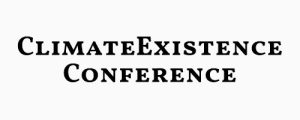

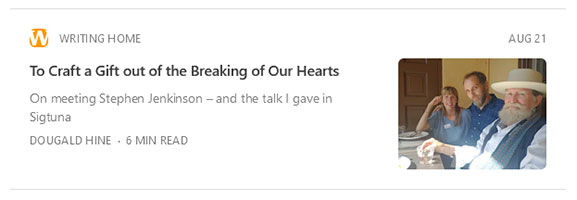


















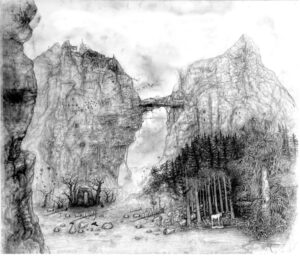 Mattias Bäcklin’s artistry moves between creation and decay, life and death. Art historical references meet ecology and metaphysics. Inspiration is often drawn from the knowledge the artist has acquired over the years as an ornithologist and insect collector as a hobby. Field notes, childhood memories as well as actual places are woven together with folklore and legends into the fragmentary narratives that recur in the drawings. Human artifacts and buildings, often in ruins, meet mountain landscapes, forests, mammals, birds, insects and organic forms. Civilization and nature are linked together to create a third alternative, on the border between present and origin. While traces of human activity often carry a dystopian undertone, the non-human pristine nature emerges all the more harmonious, like fleeting memories from a more original existence.
Mattias Bäcklin’s artistry moves between creation and decay, life and death. Art historical references meet ecology and metaphysics. Inspiration is often drawn from the knowledge the artist has acquired over the years as an ornithologist and insect collector as a hobby. Field notes, childhood memories as well as actual places are woven together with folklore and legends into the fragmentary narratives that recur in the drawings. Human artifacts and buildings, often in ruins, meet mountain landscapes, forests, mammals, birds, insects and organic forms. Civilization and nature are linked together to create a third alternative, on the border between present and origin. While traces of human activity often carry a dystopian undertone, the non-human pristine nature emerges all the more harmonious, like fleeting memories from a more original existence.
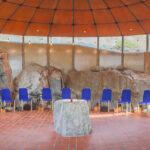 The Crypt (Kryptan) will be open for contemplation, meditation and prayer throughout the conference. Keycard can be picked up in the reception.
[
The Crypt (Kryptan) will be open for contemplation, meditation and prayer throughout the conference. Keycard can be picked up in the reception.
[
 How can we walk with others as climate change makes life increasingly difficult? The emotional, as well as physical loss suffered due to climate change, can be overwhelming, and debilitating. Join the Shared Walks / Climate Change Edition (in the participatory research phase) and explore how embodied experience can turn into reflection and awareness, and how this can, in turn, enable agency and action.
How can we walk with others as climate change makes life increasingly difficult? The emotional, as well as physical loss suffered due to climate change, can be overwhelming, and debilitating. Join the Shared Walks / Climate Change Edition (in the participatory research phase) and explore how embodied experience can turn into reflection and awareness, and how this can, in turn, enable agency and action.

